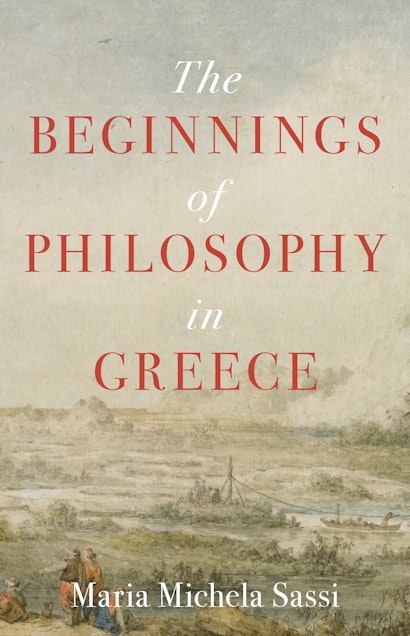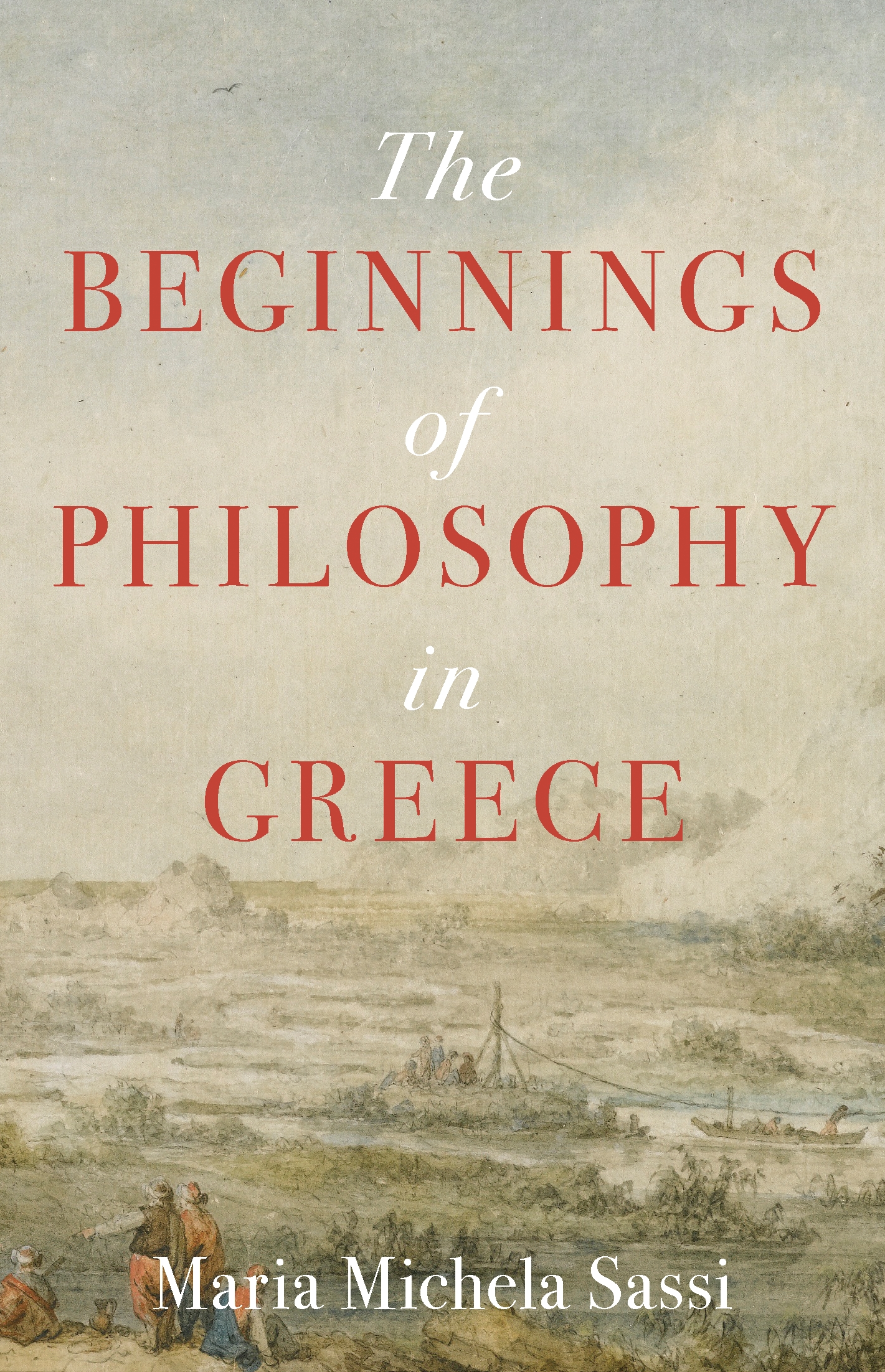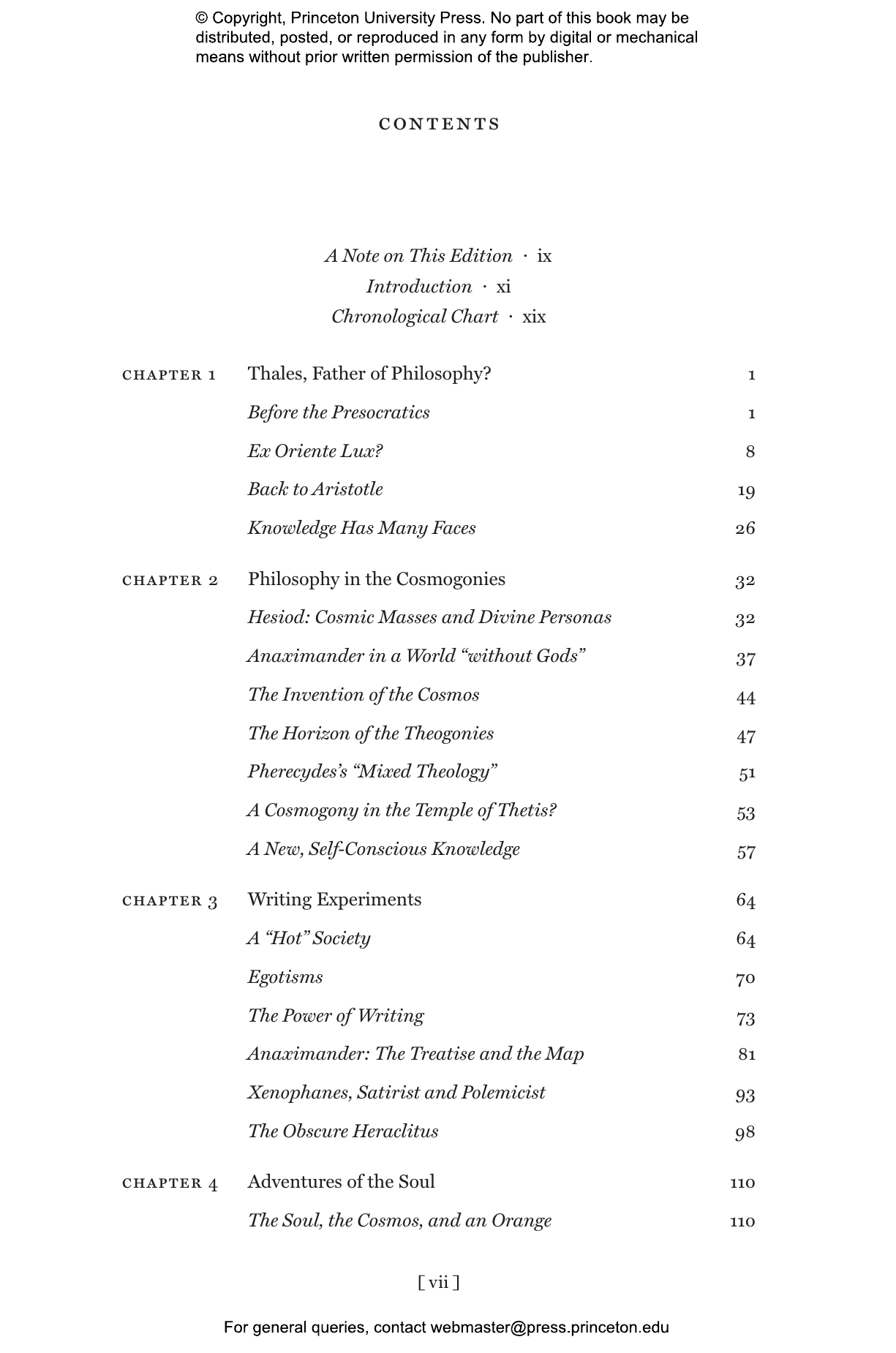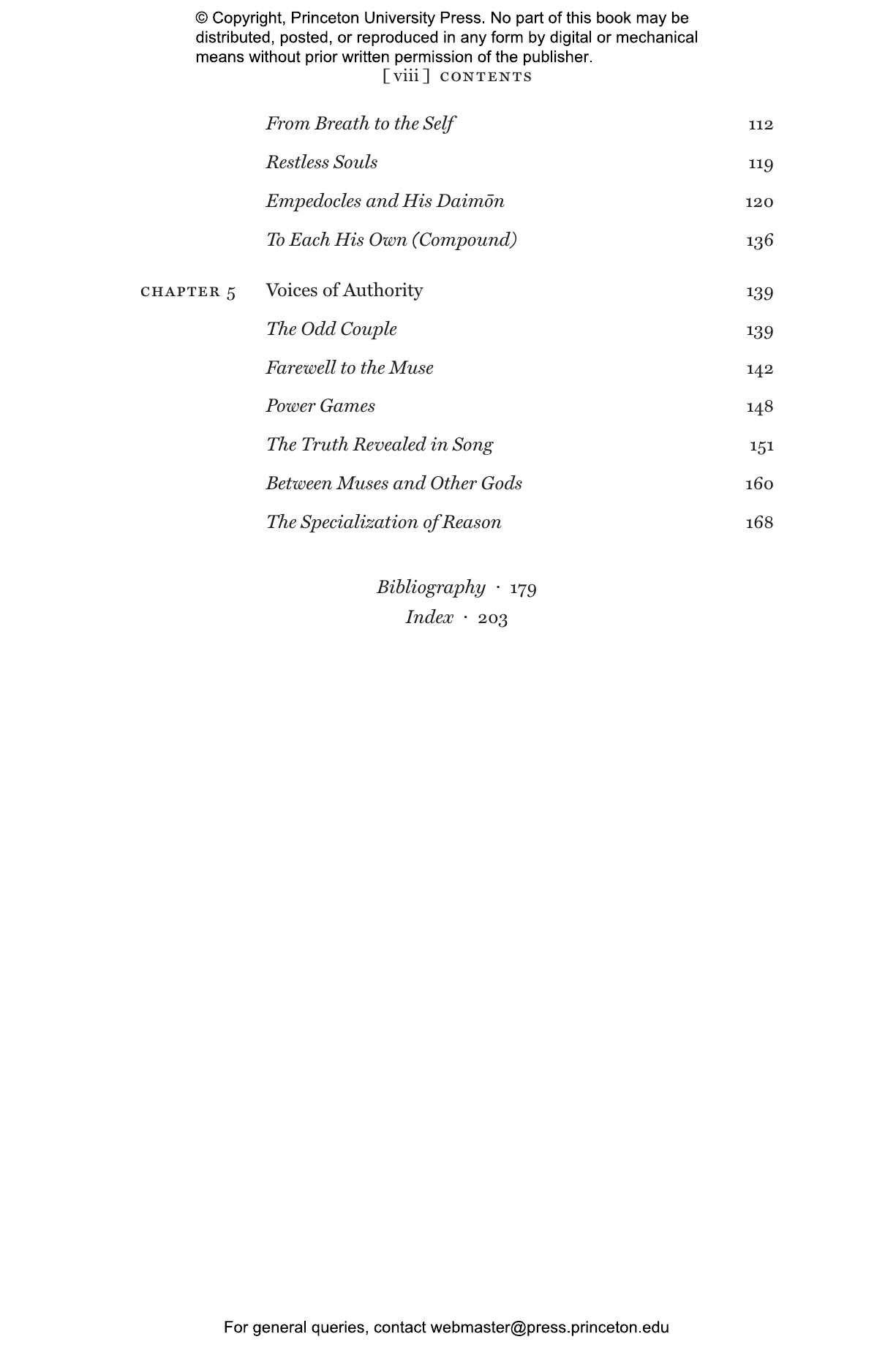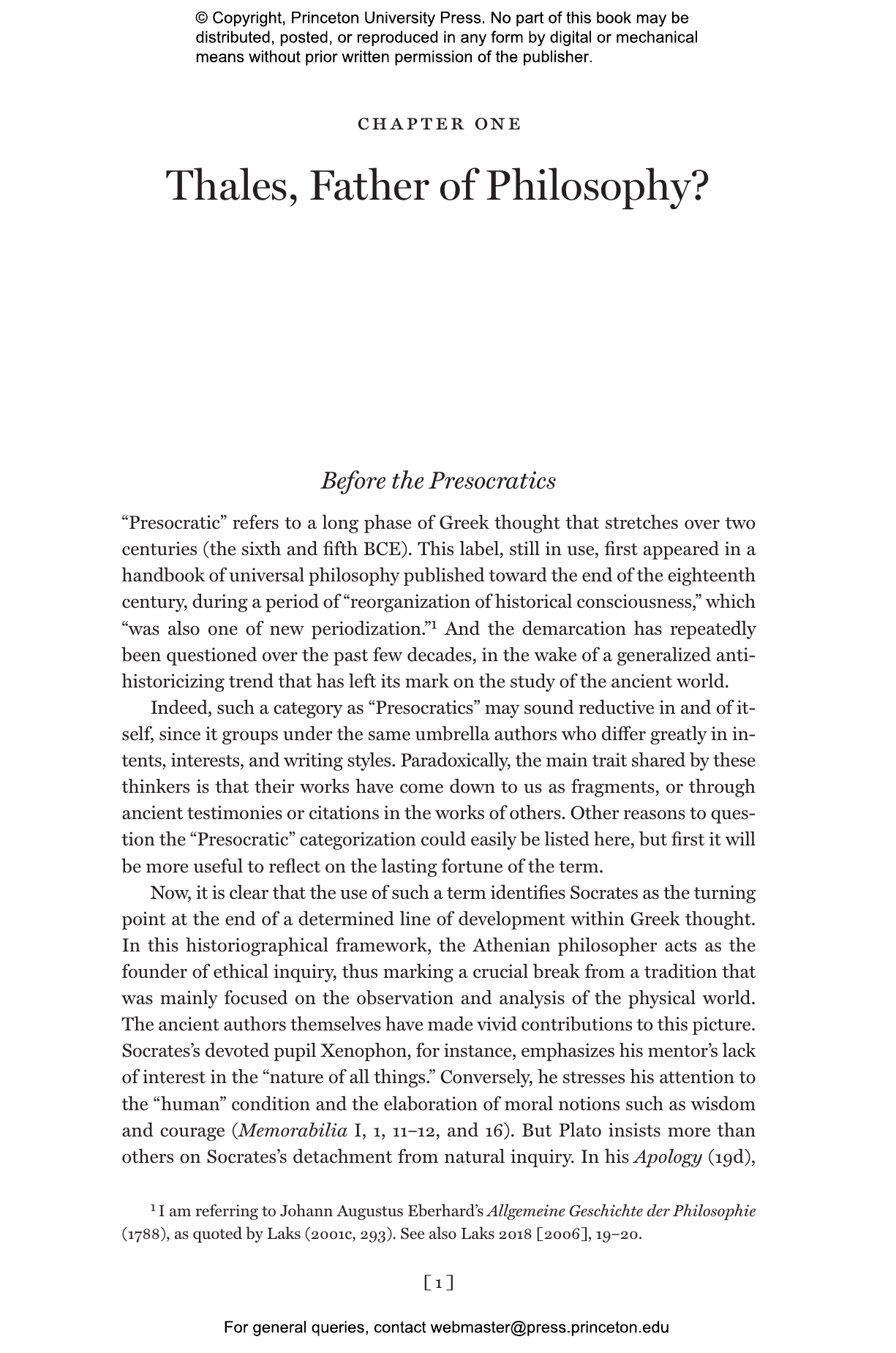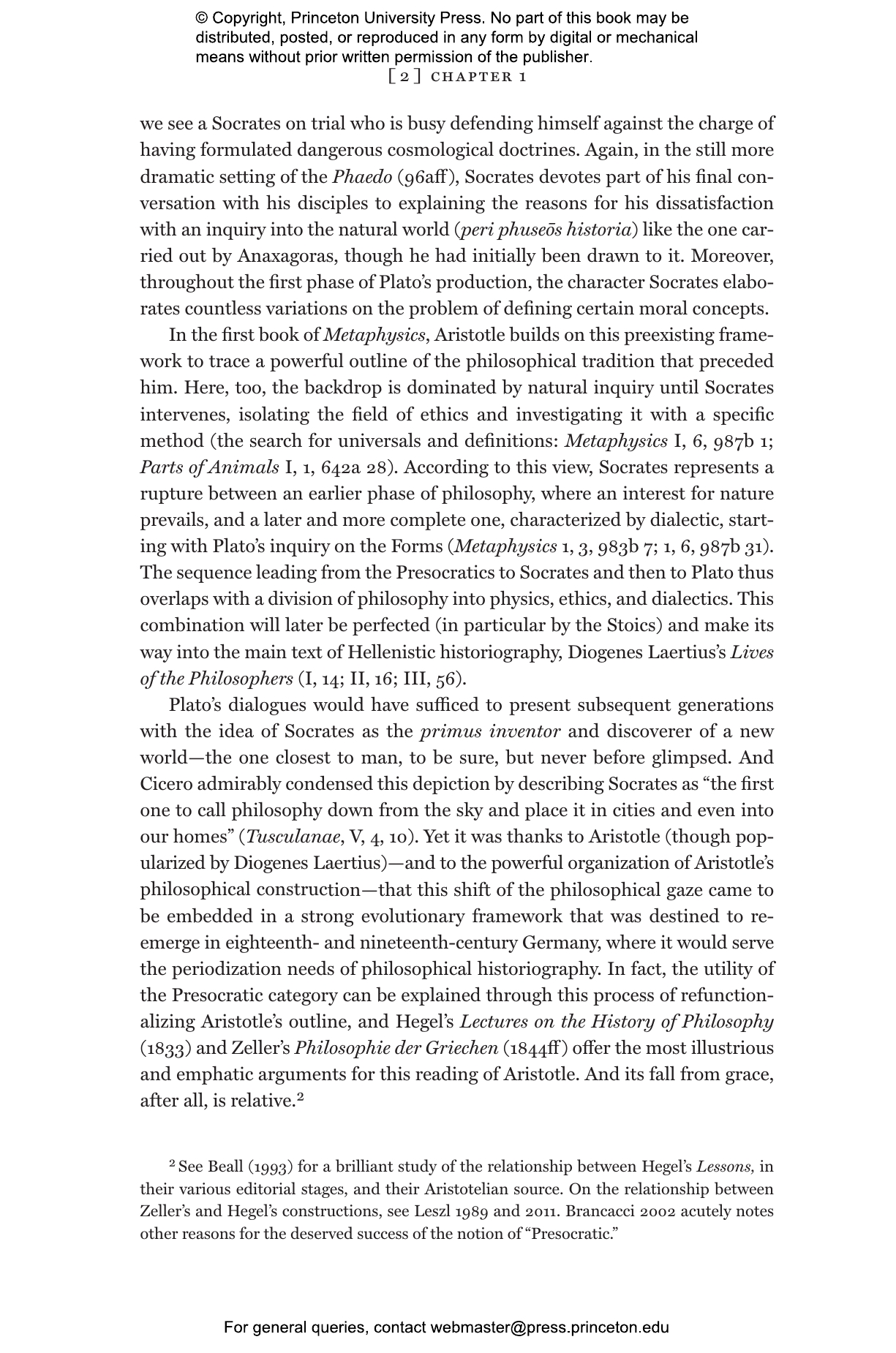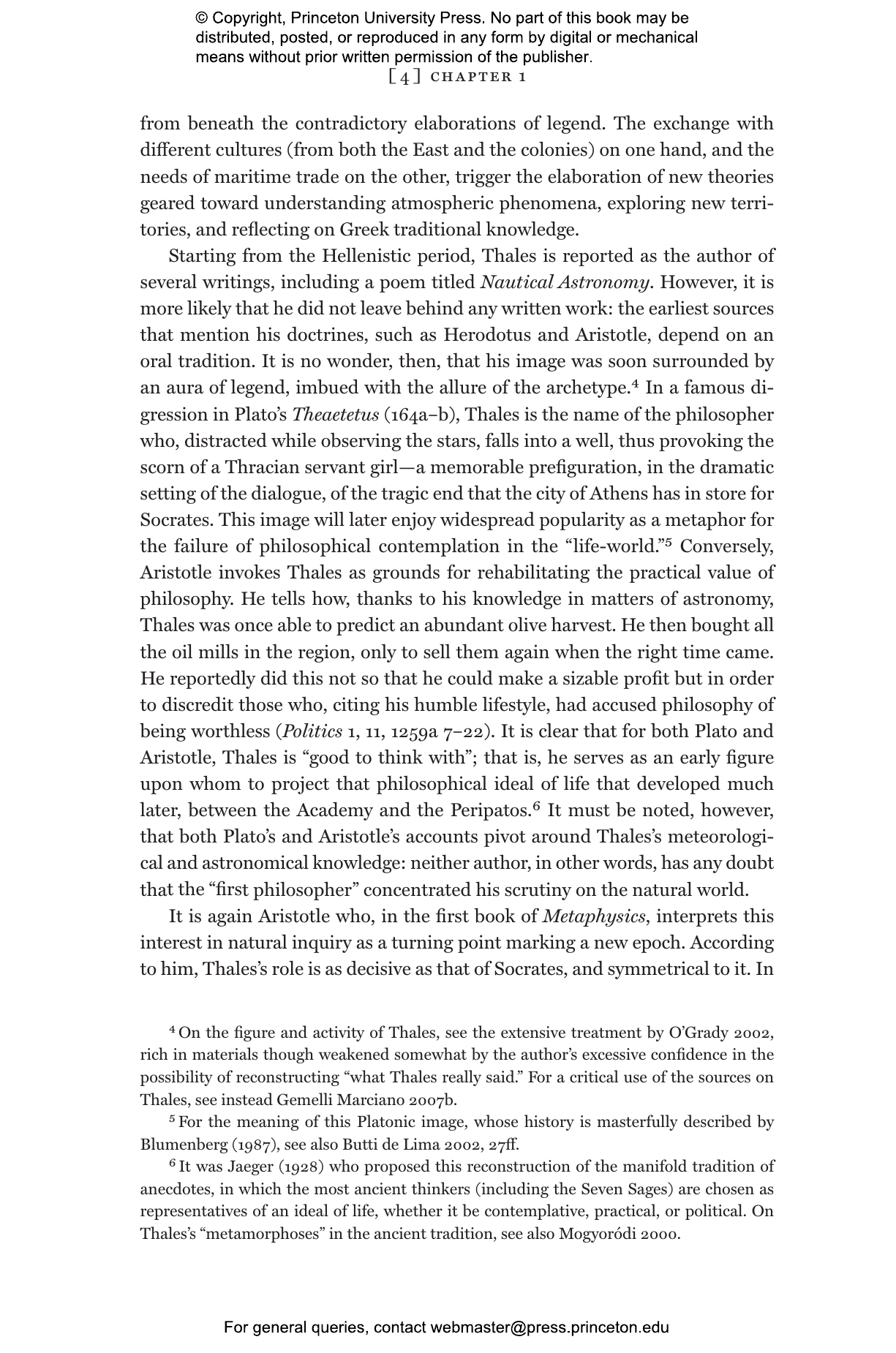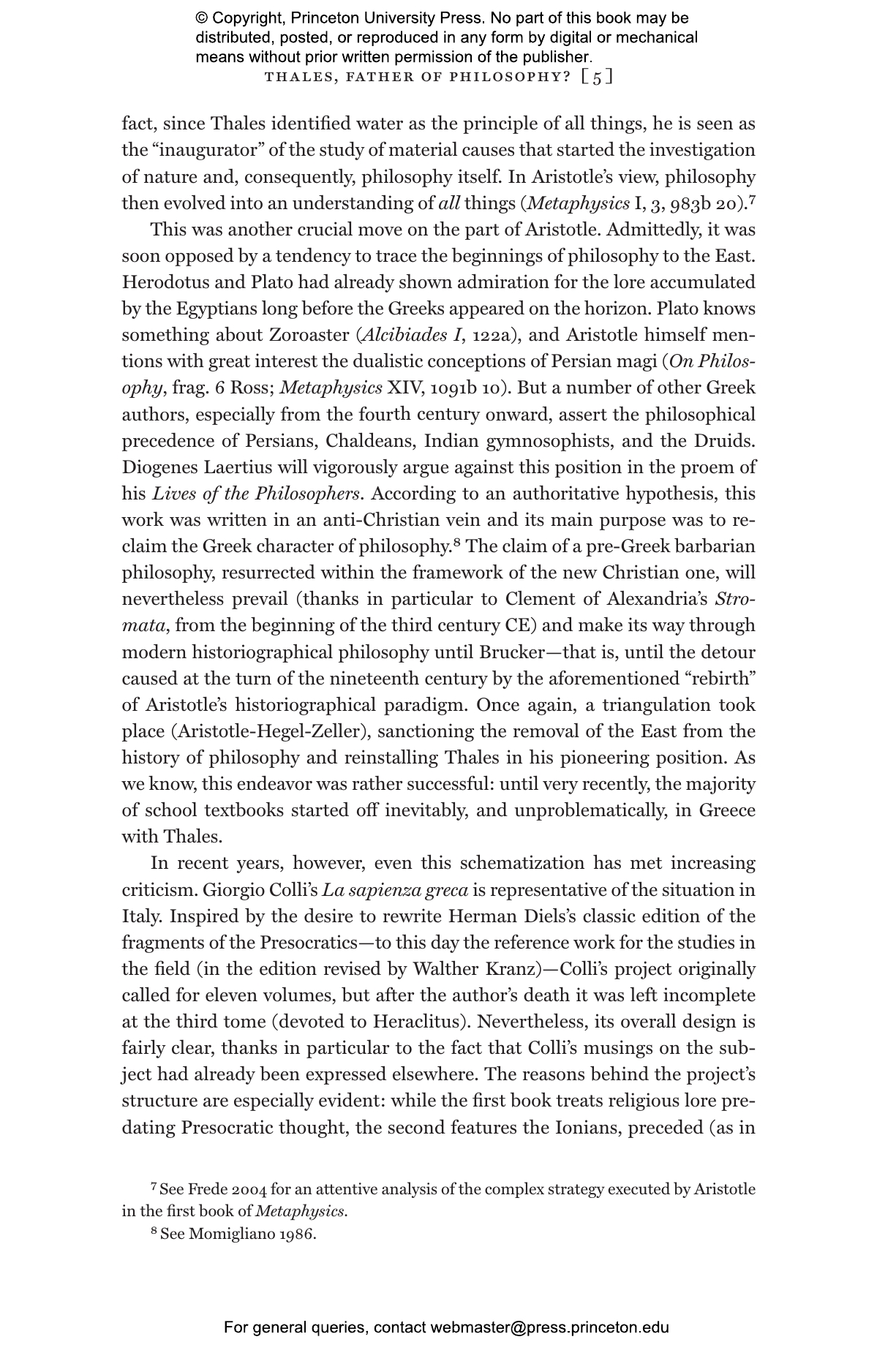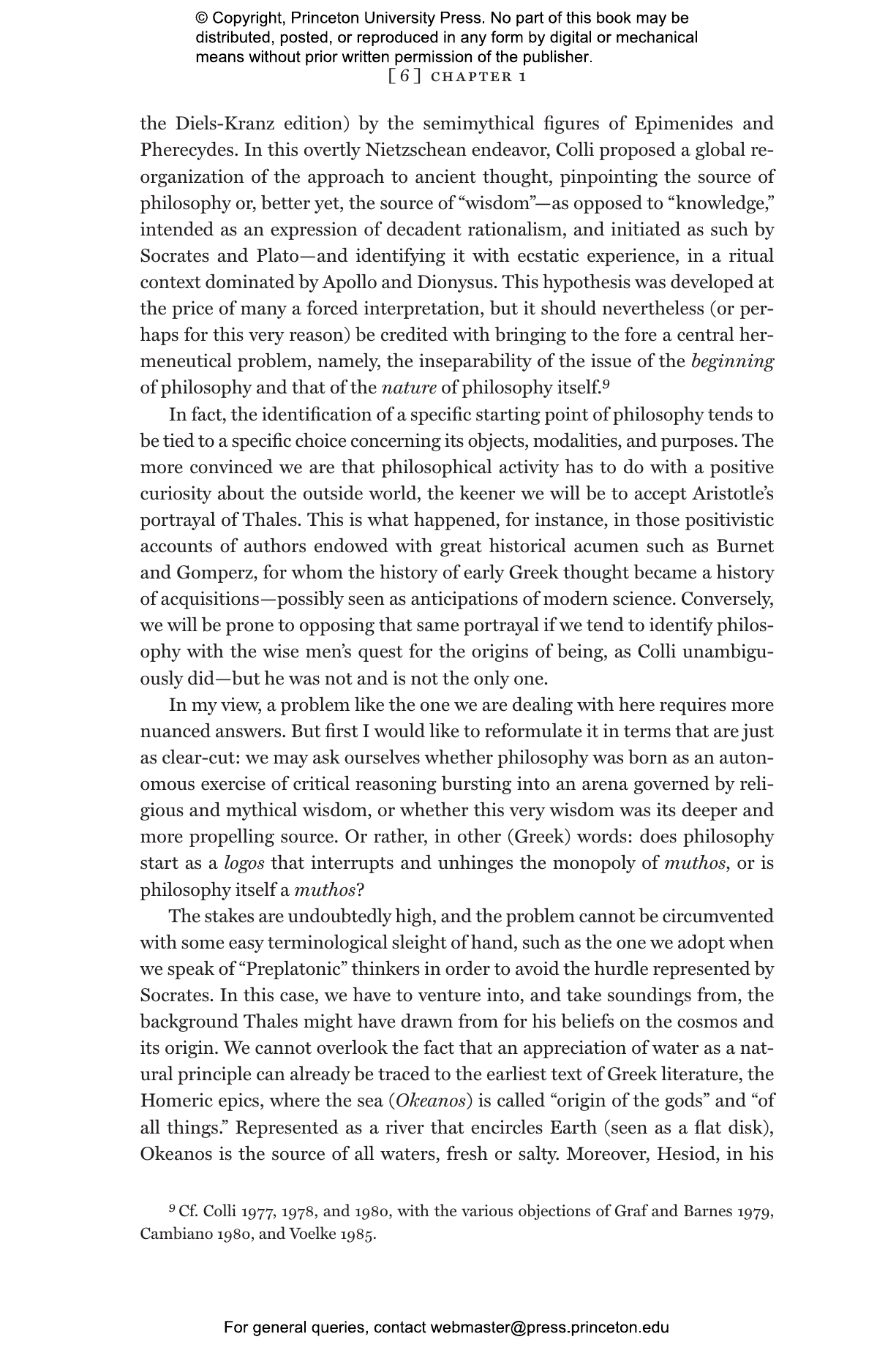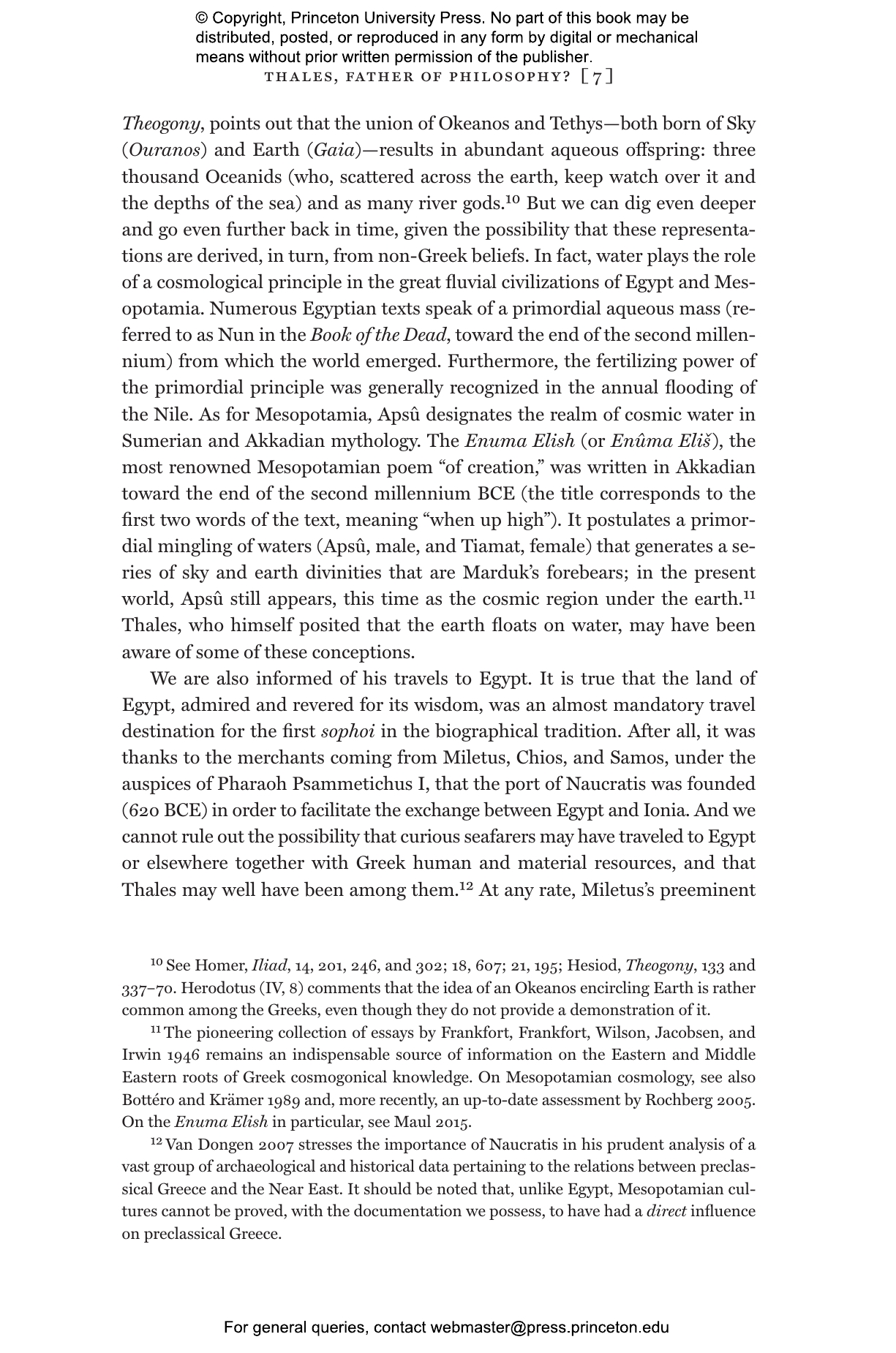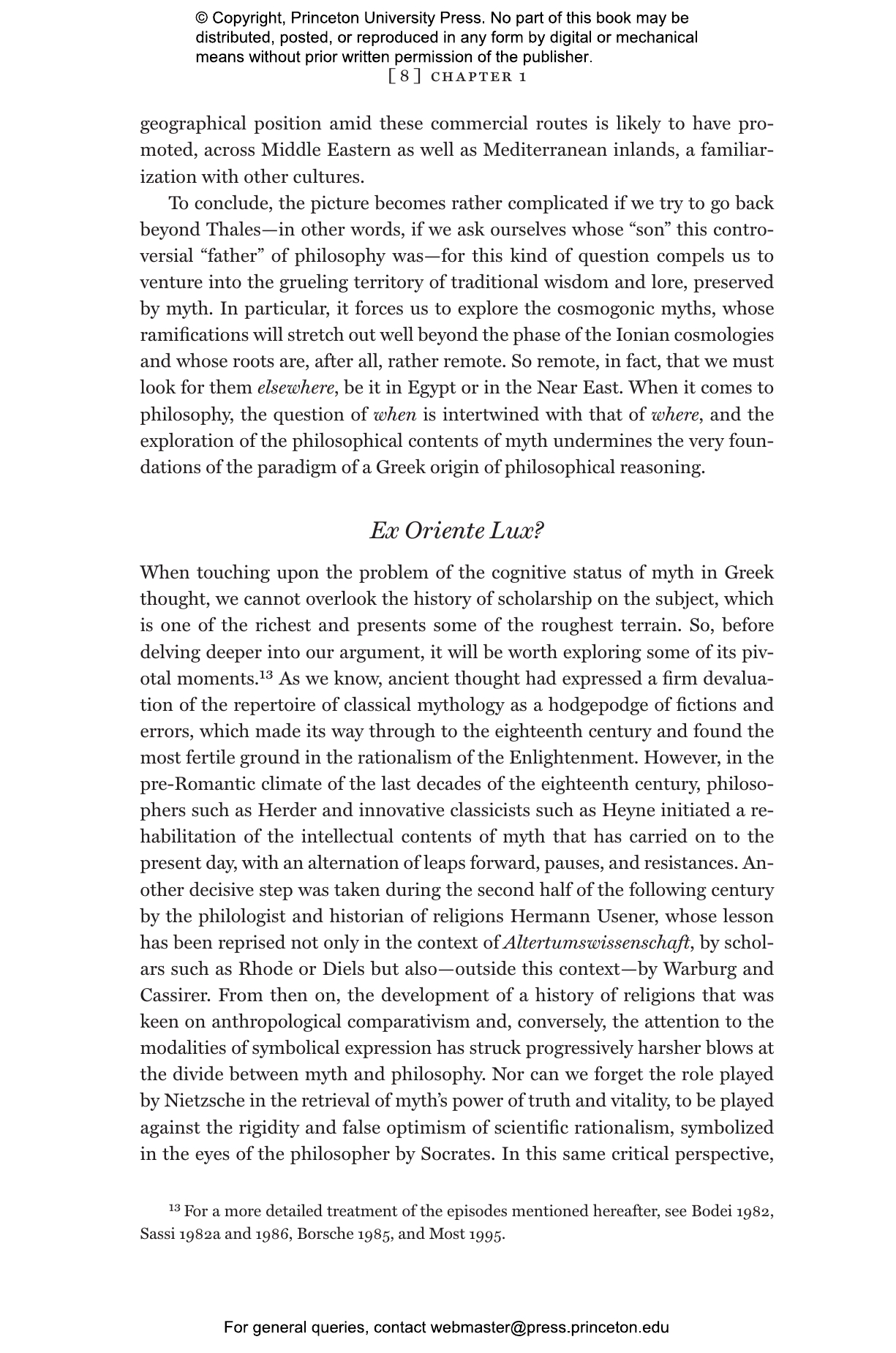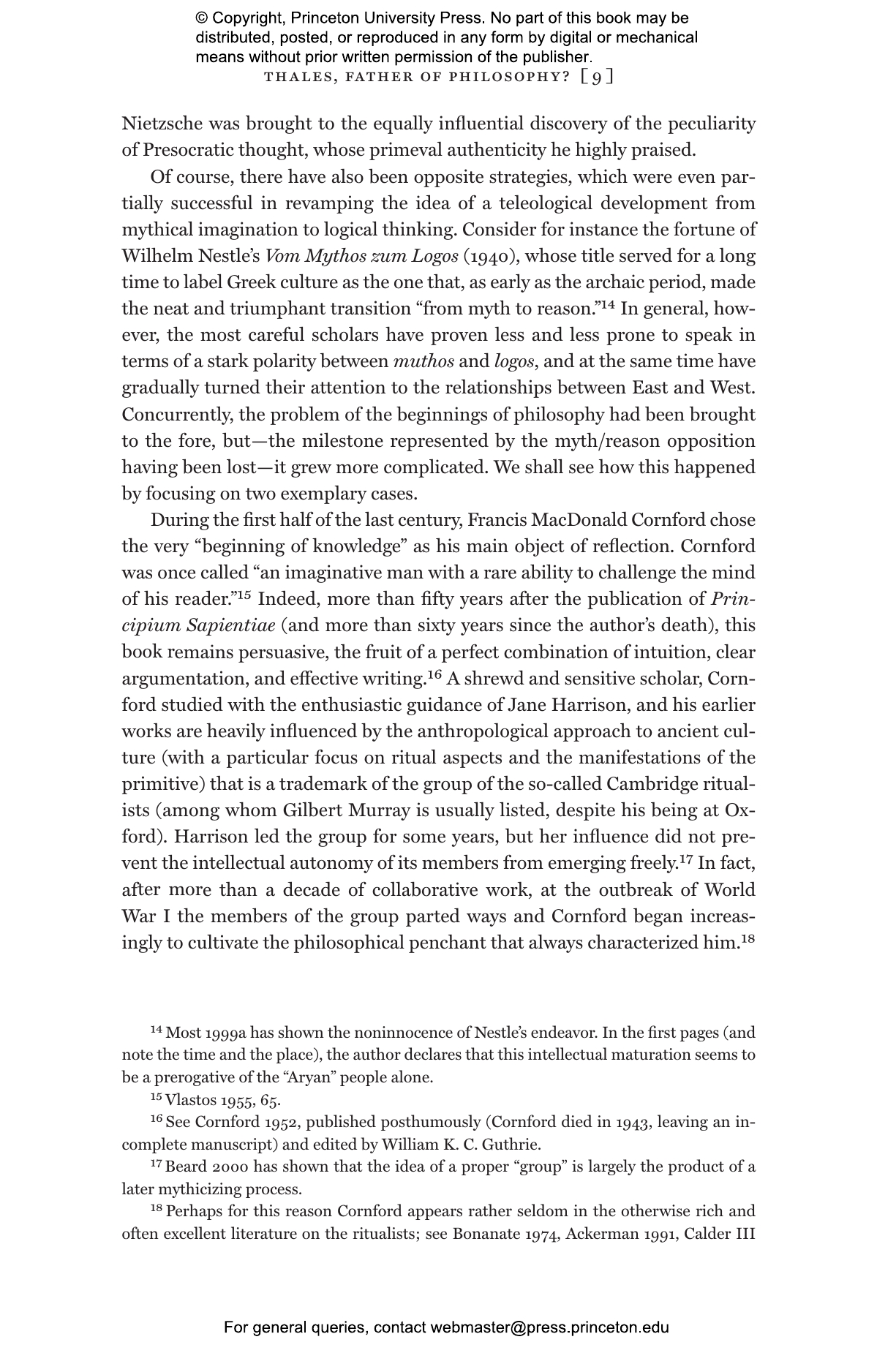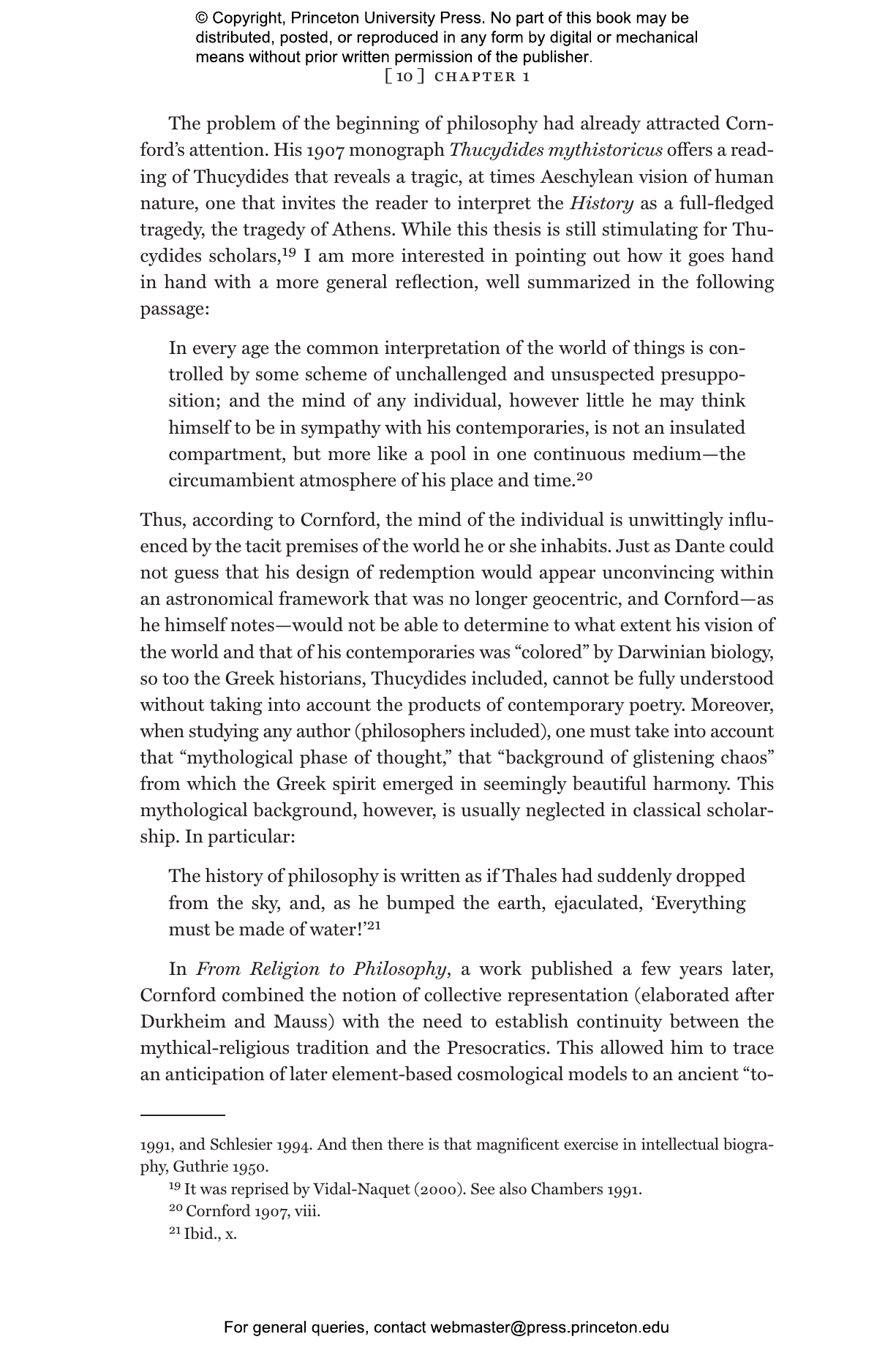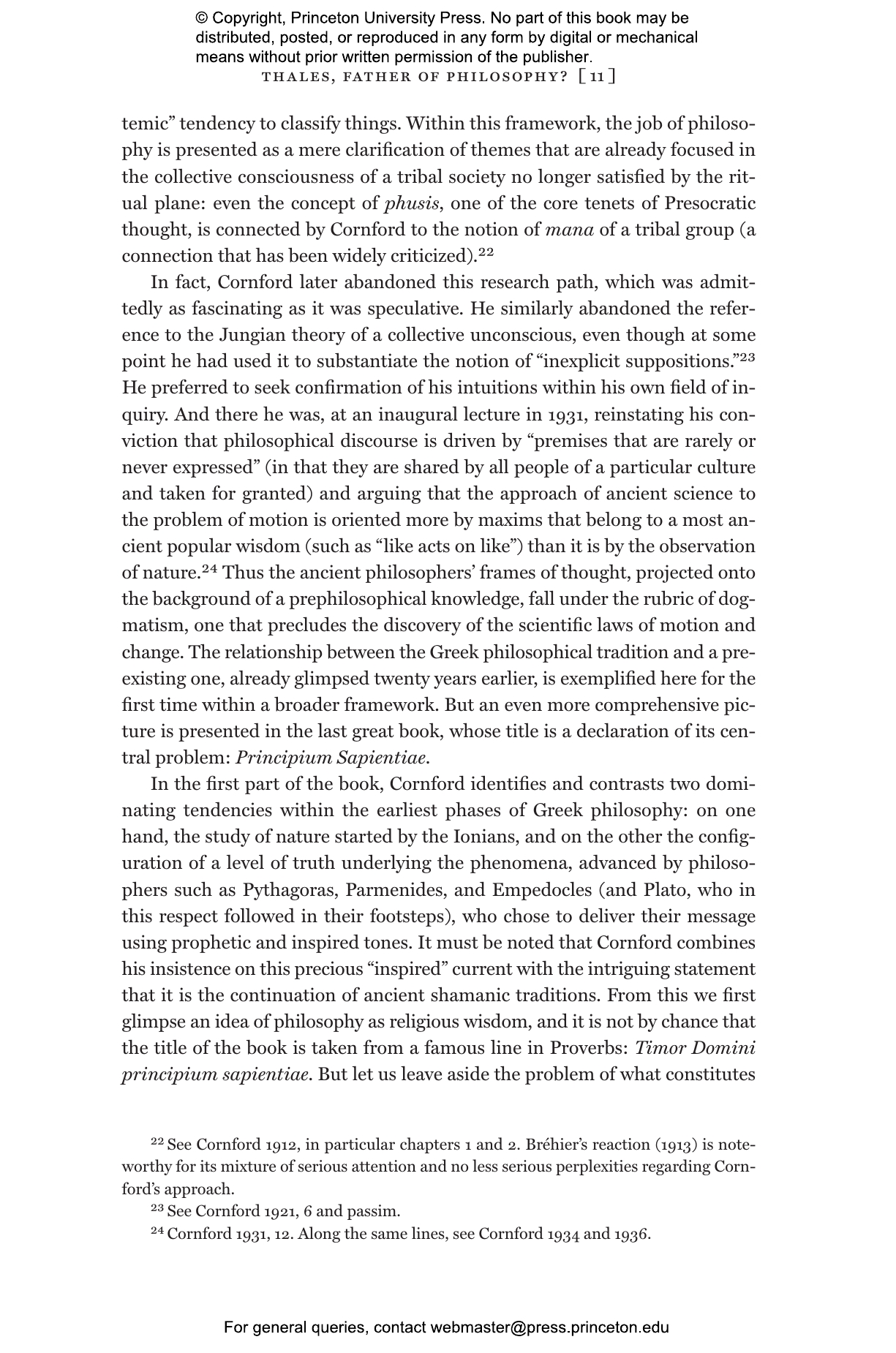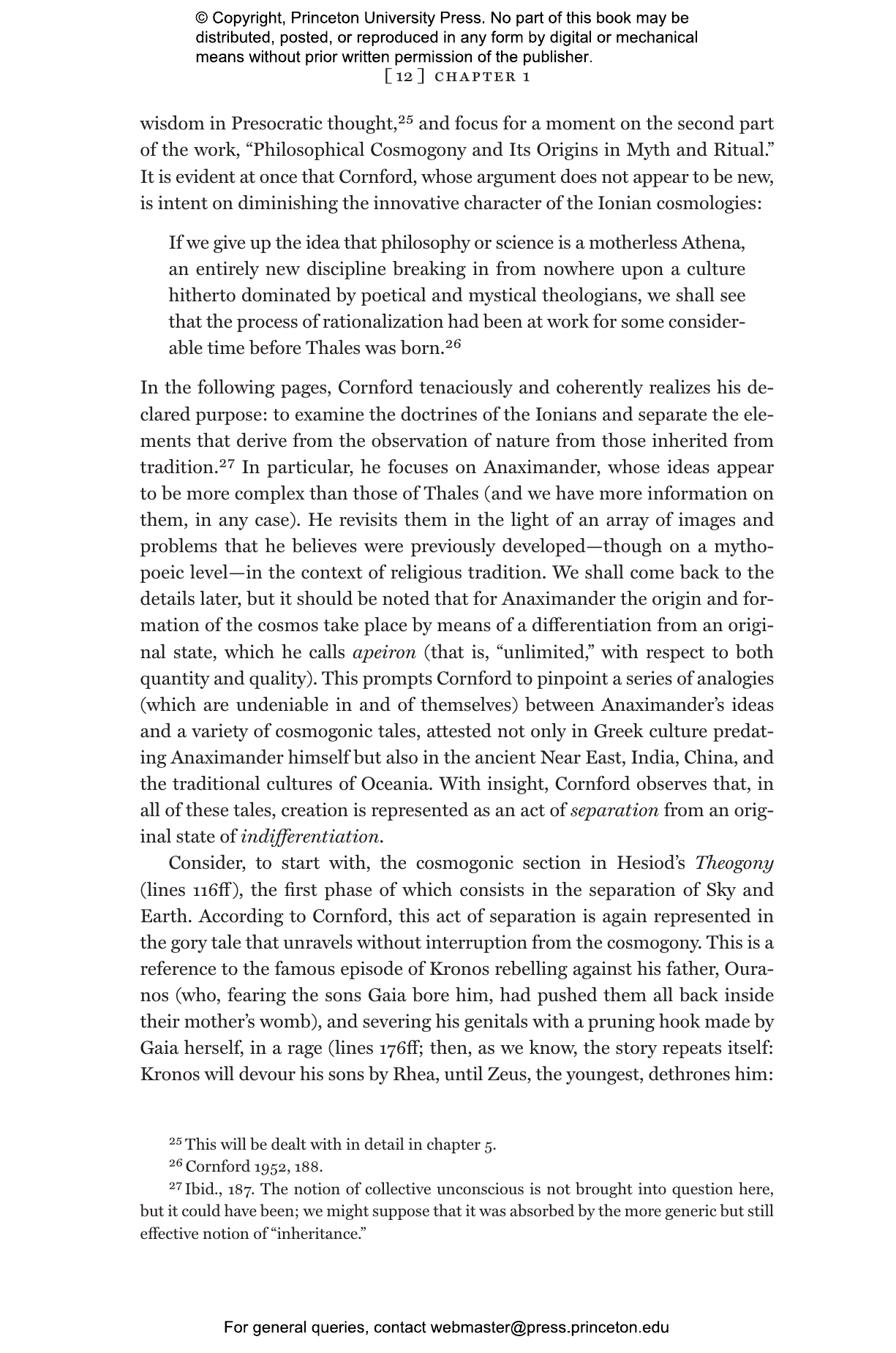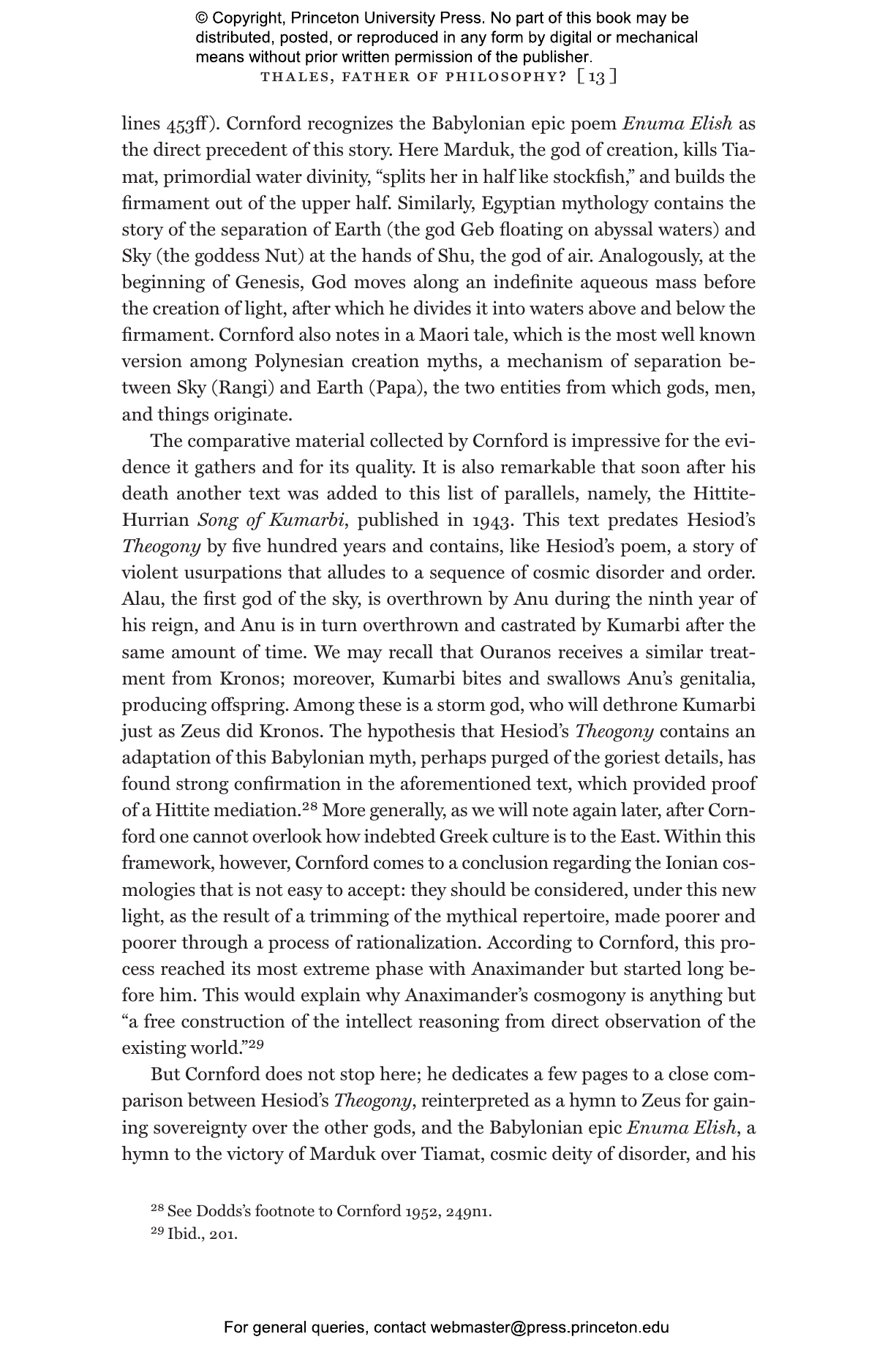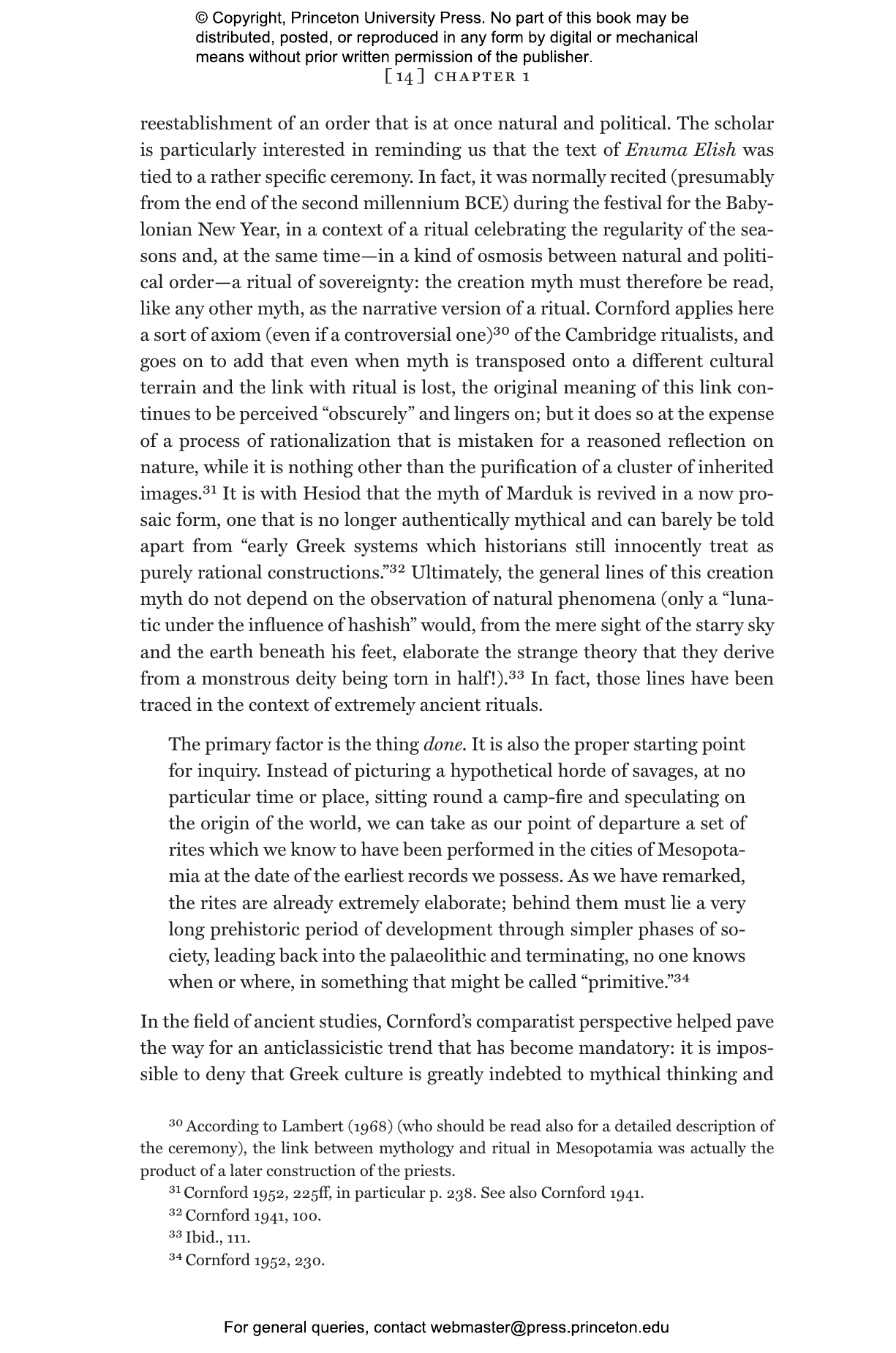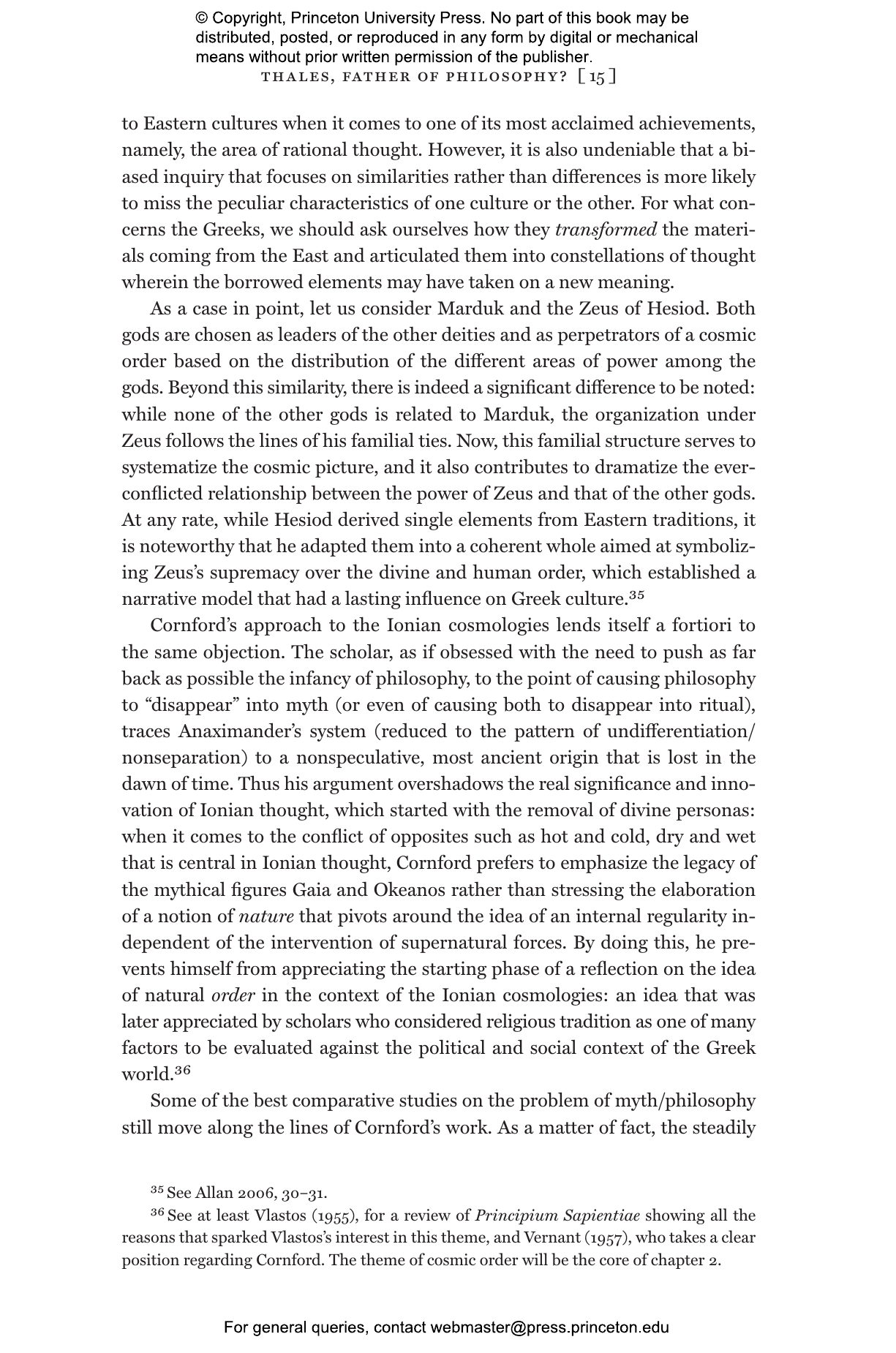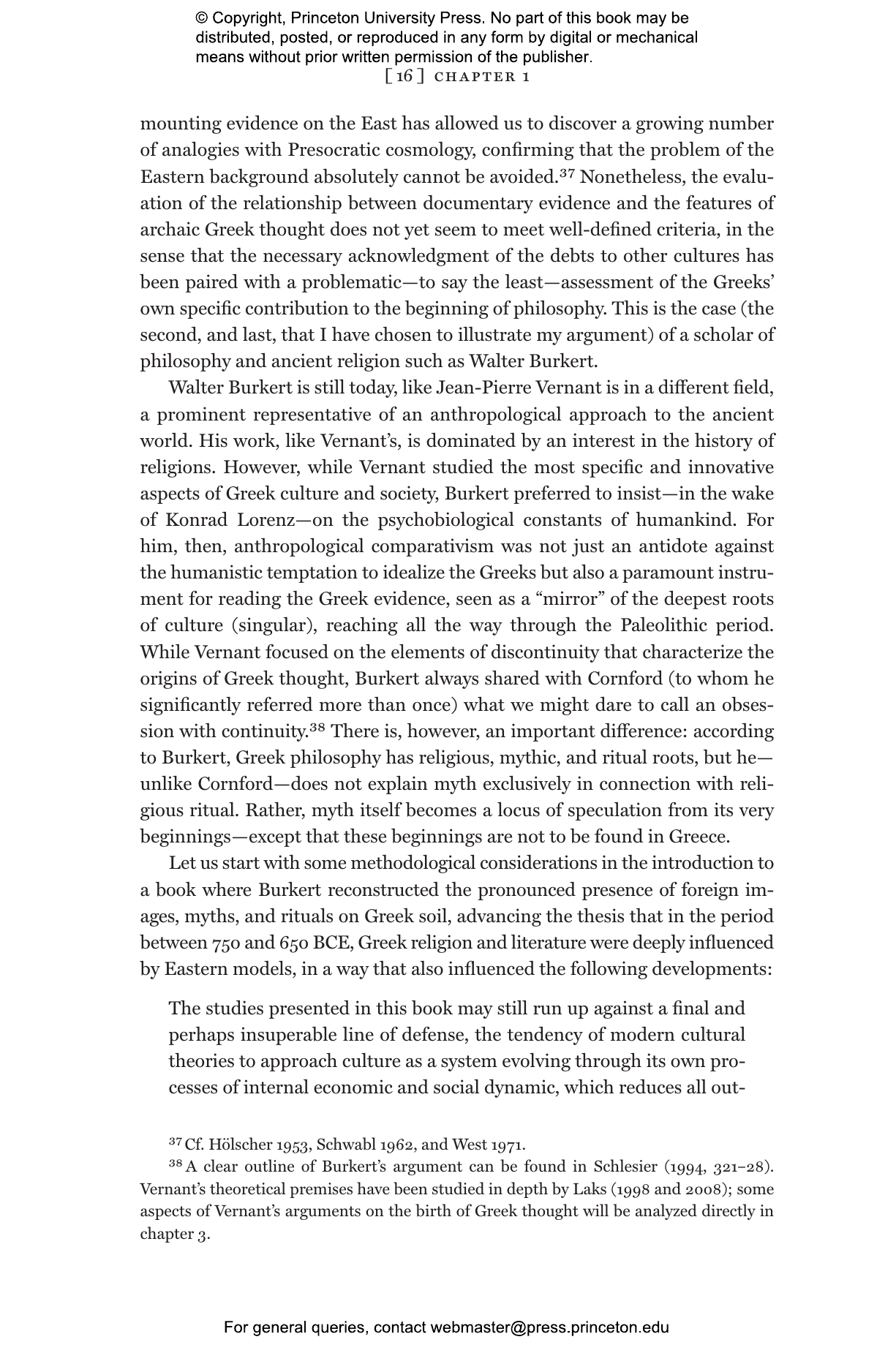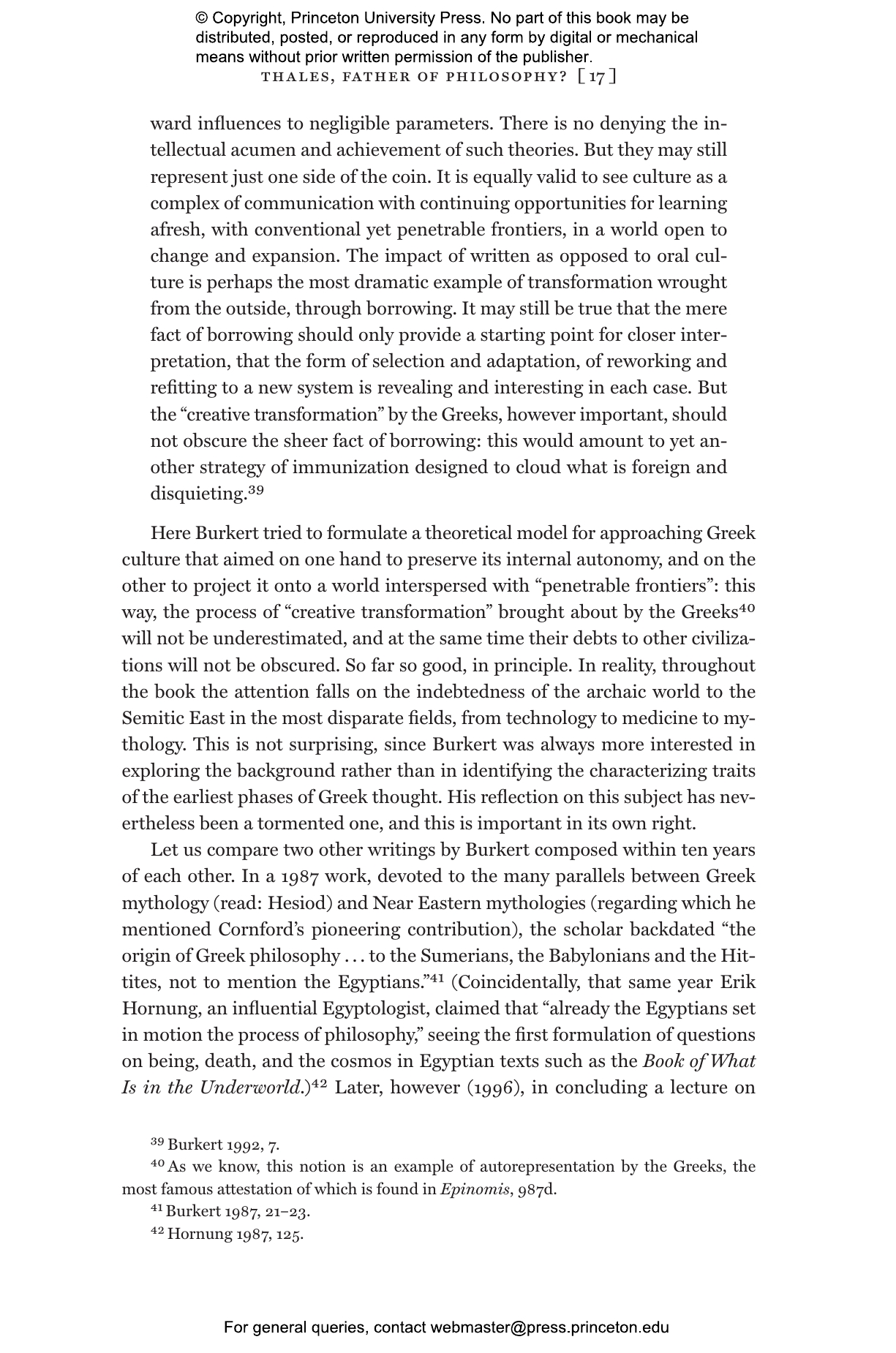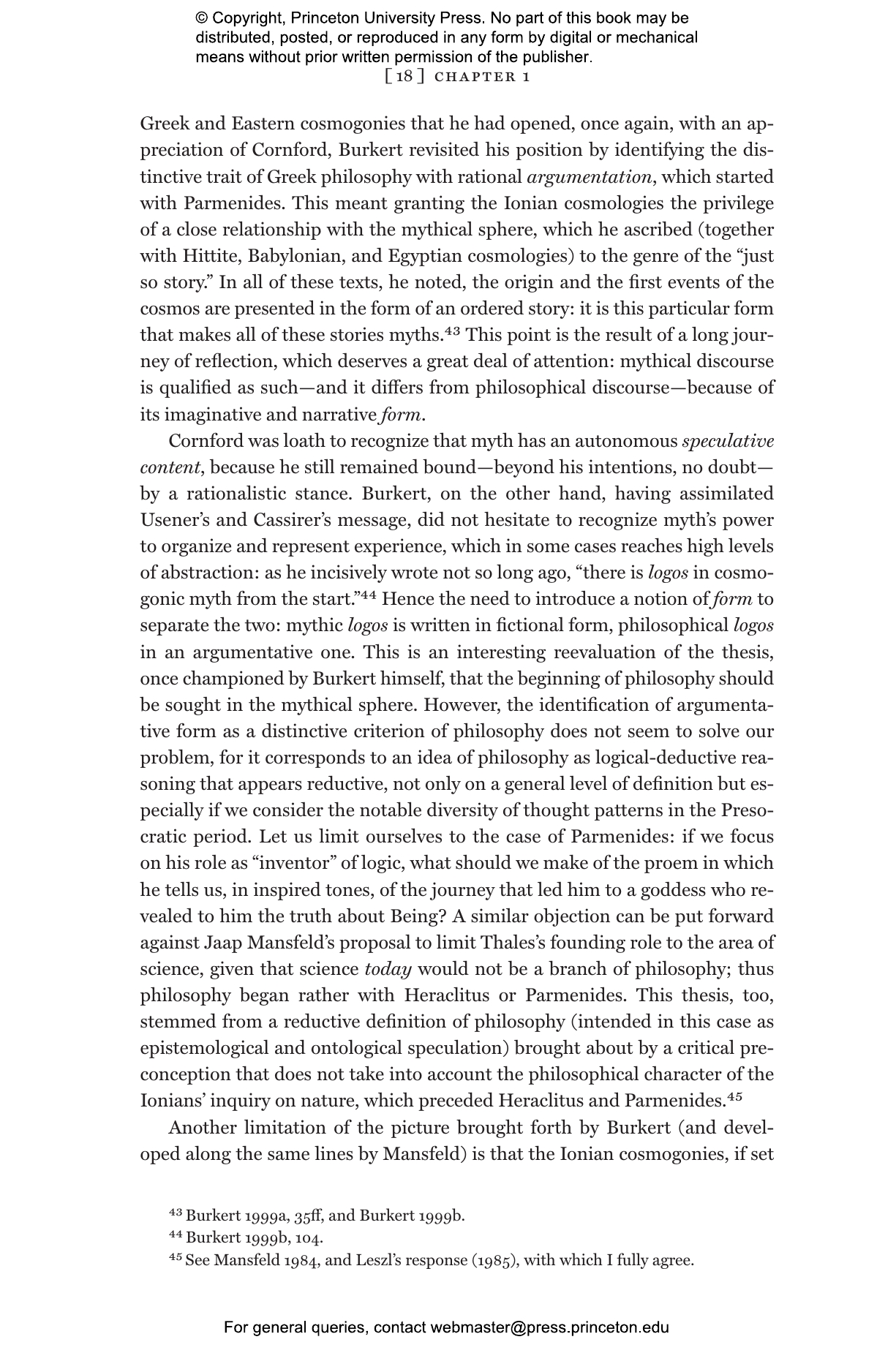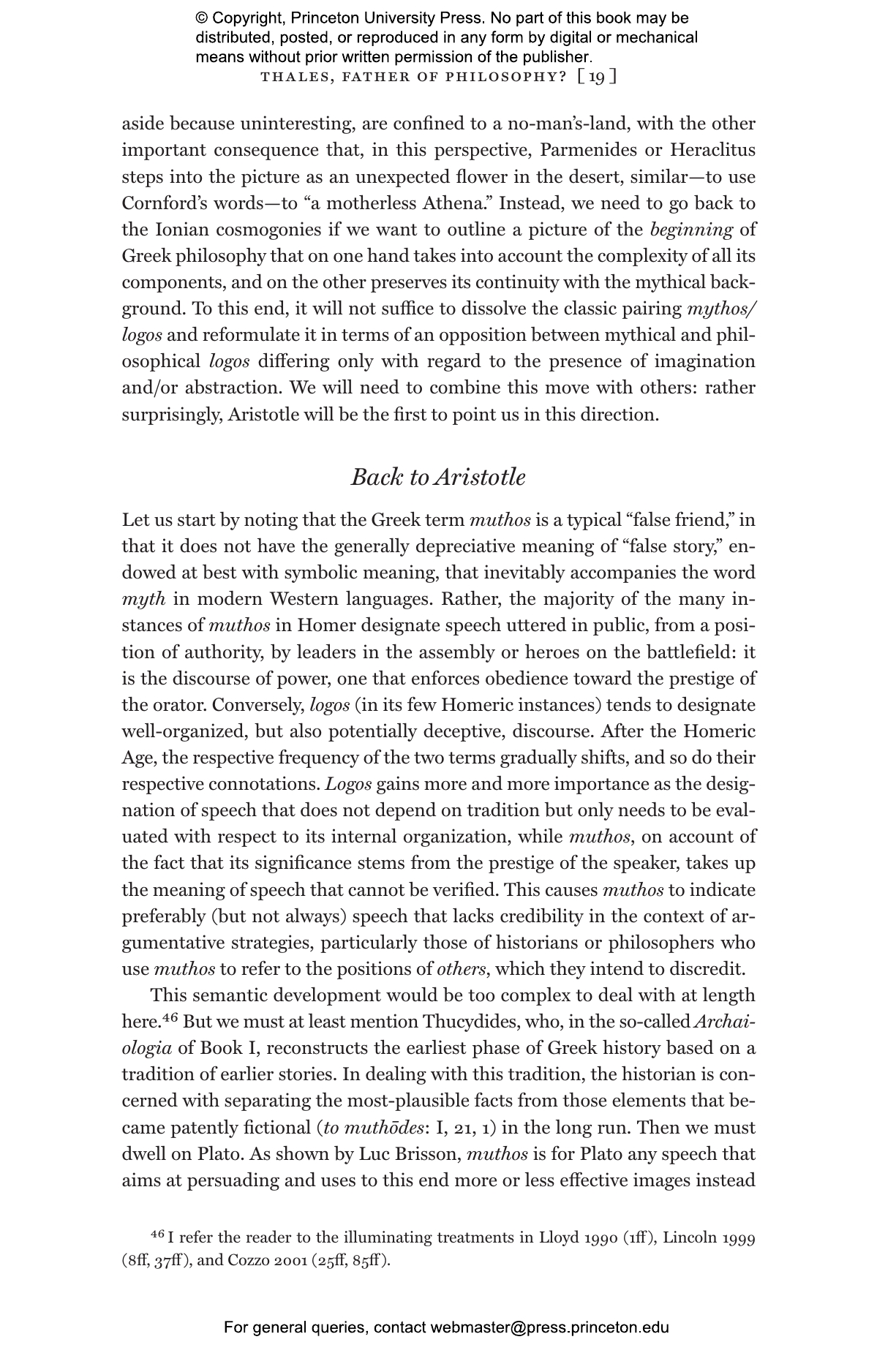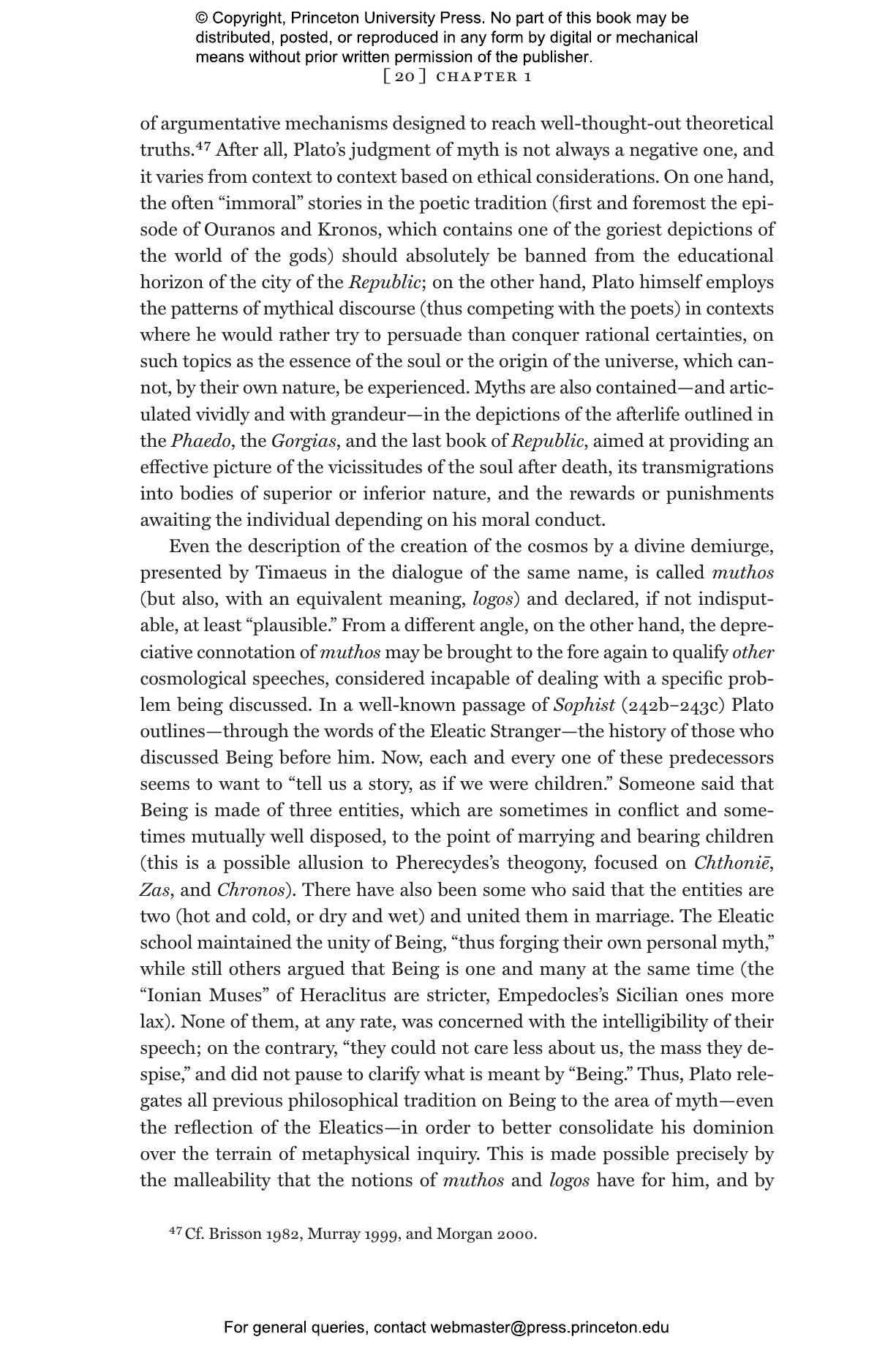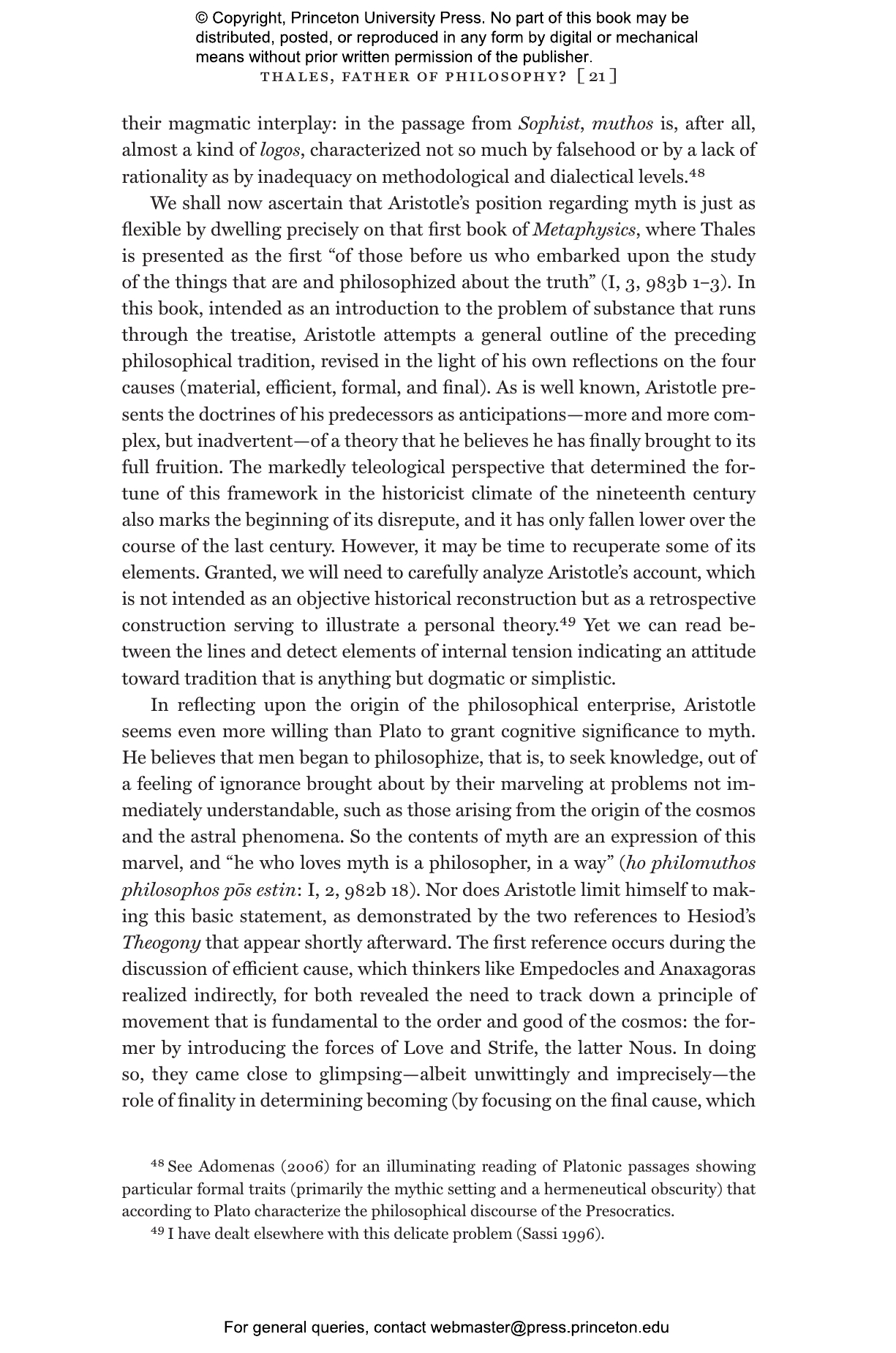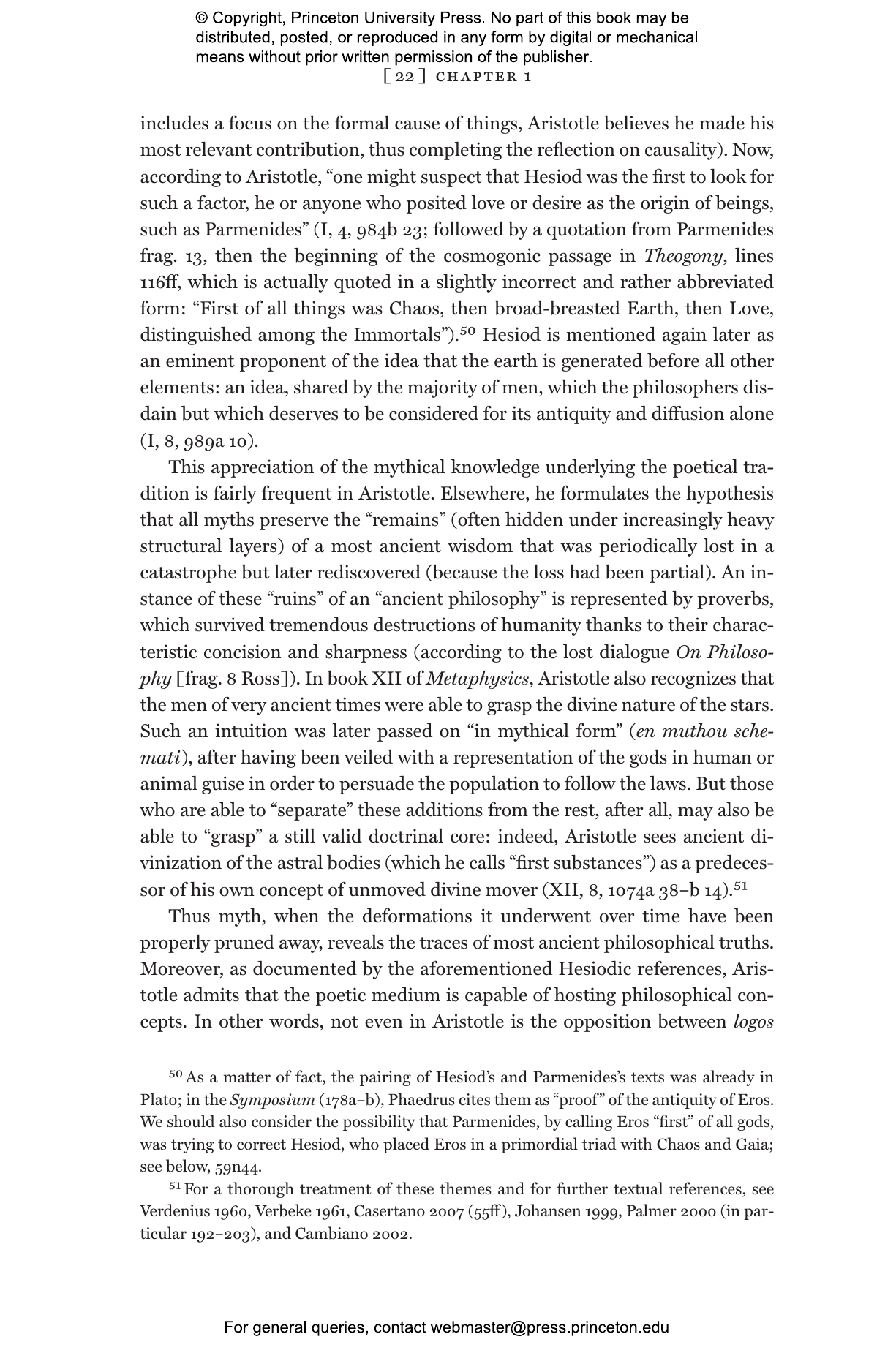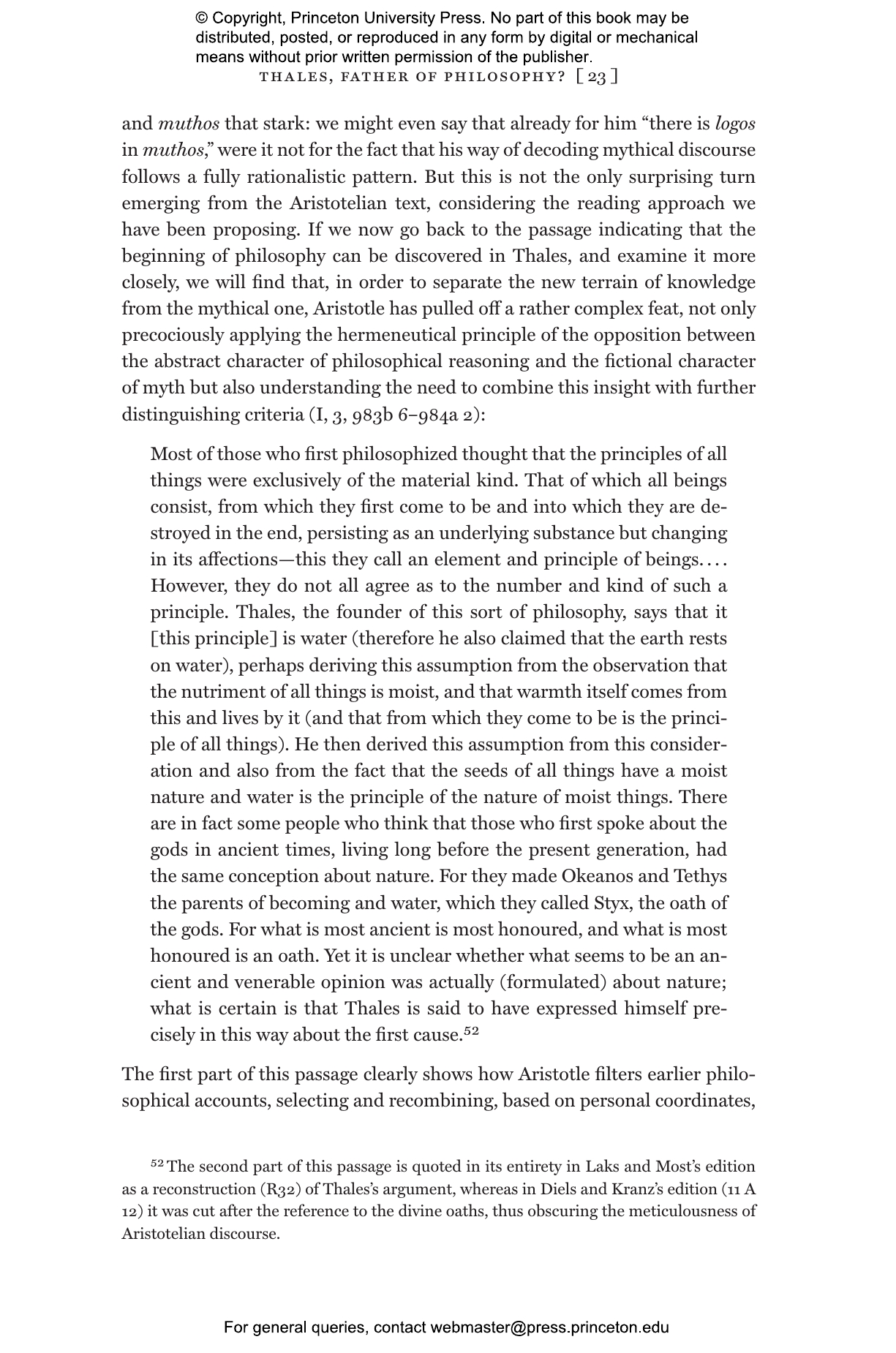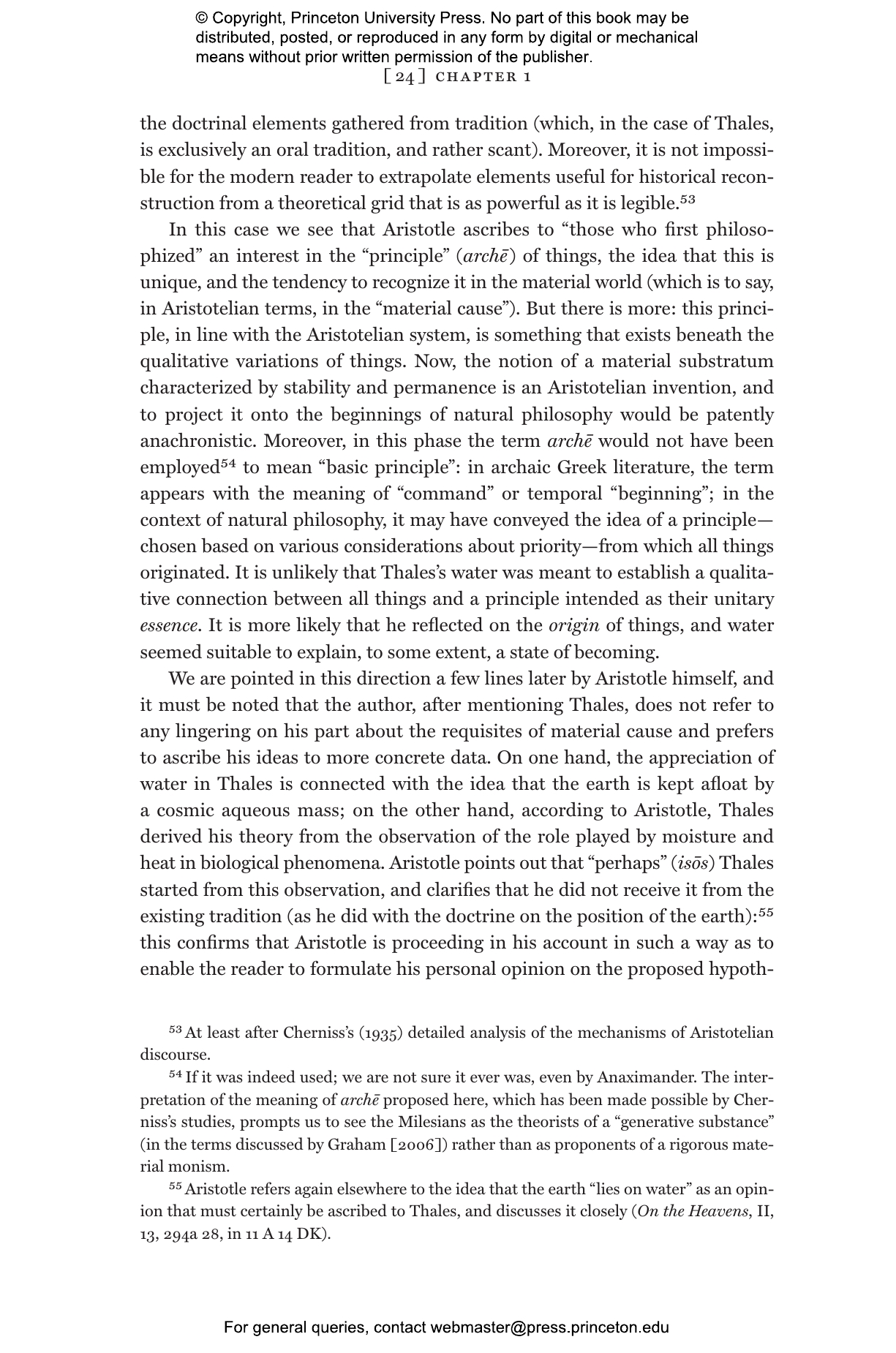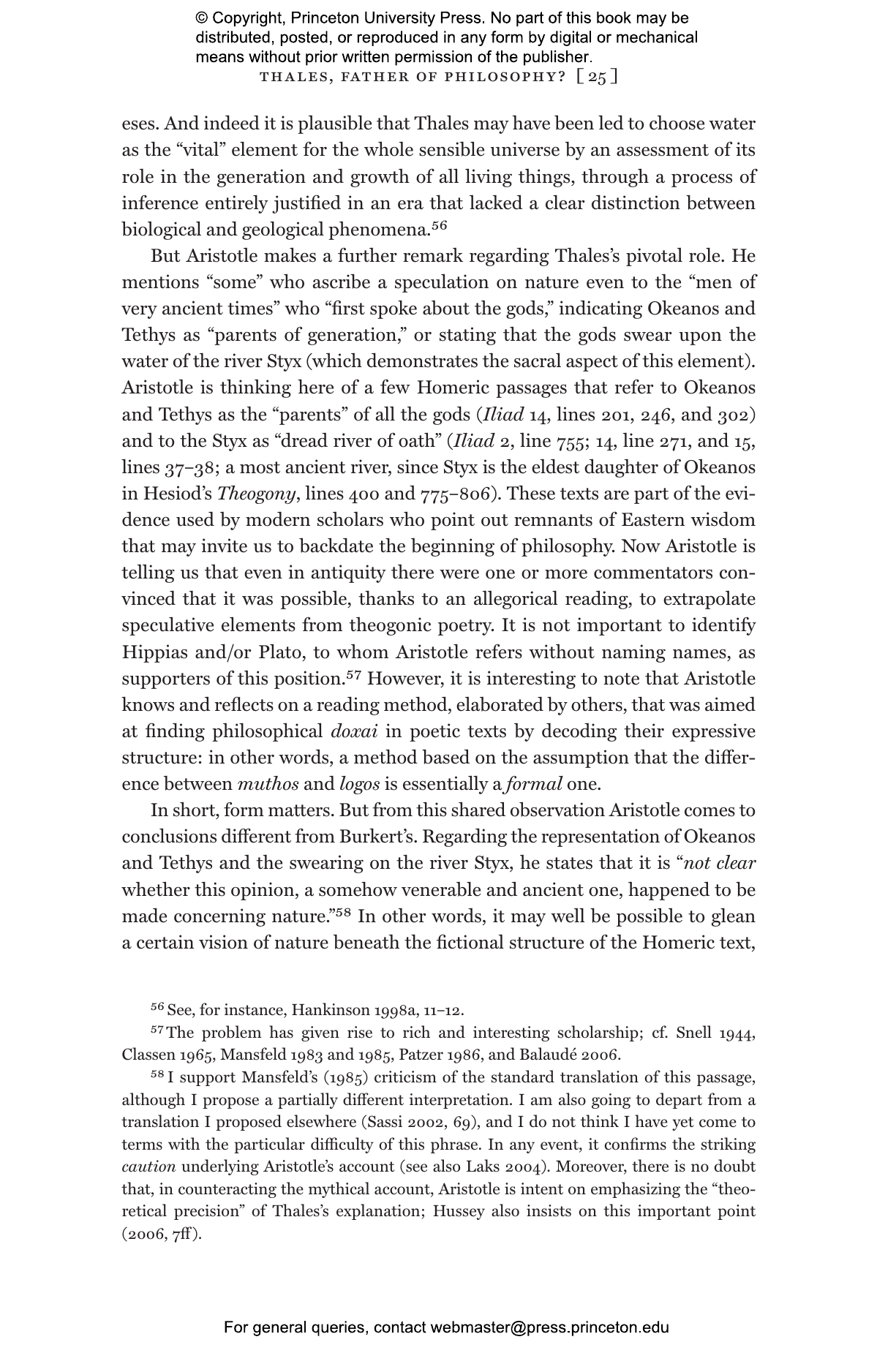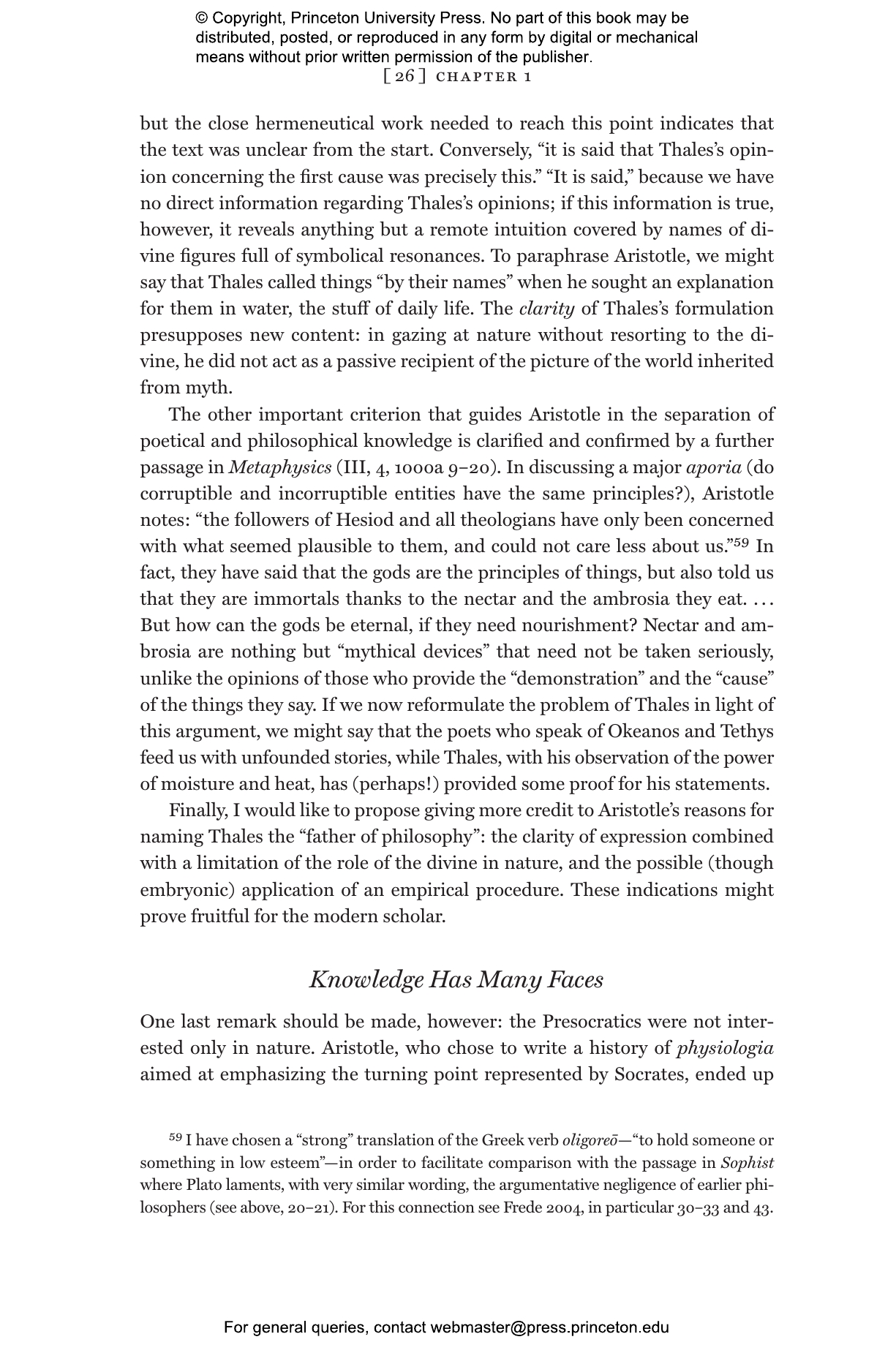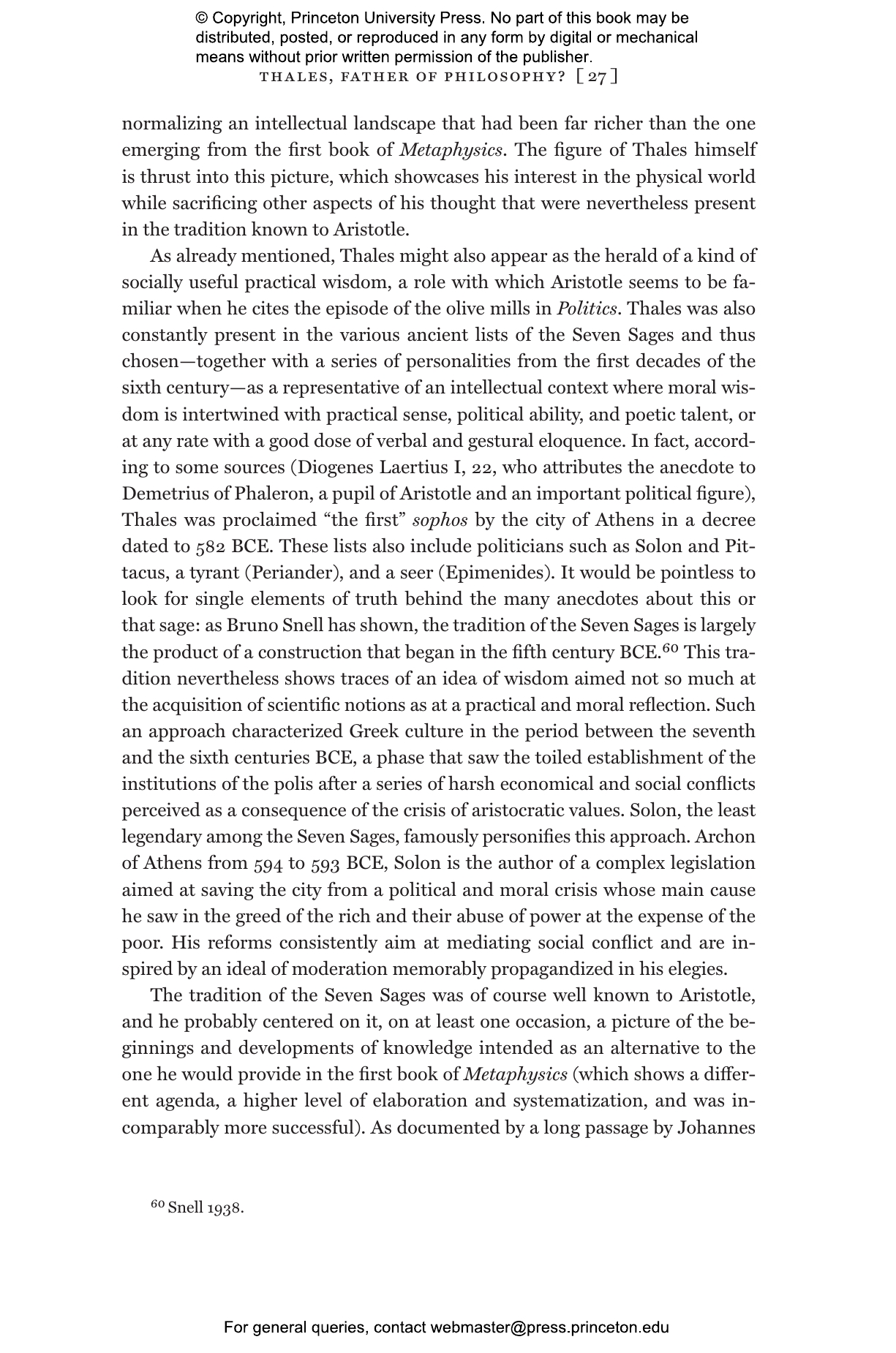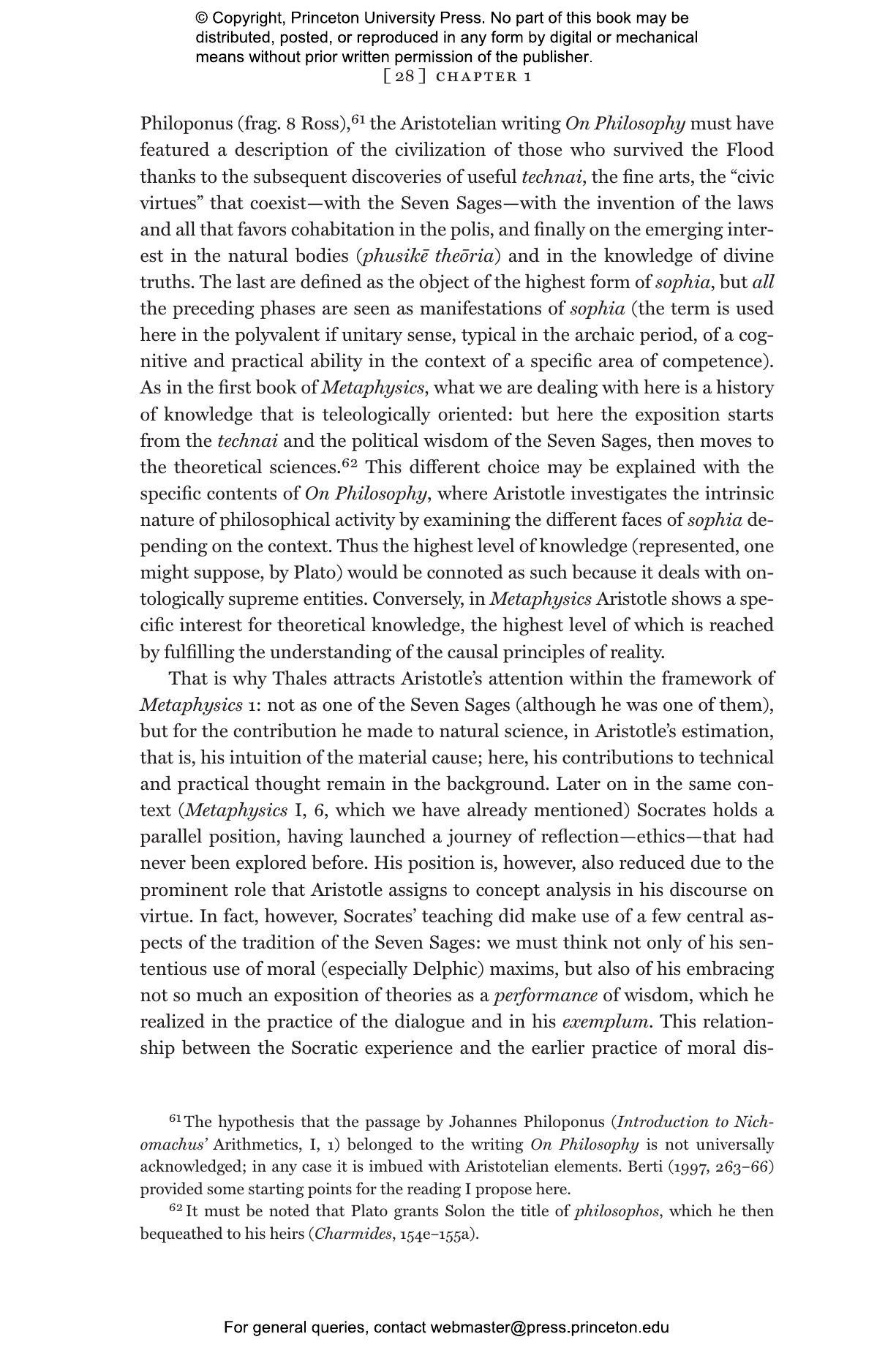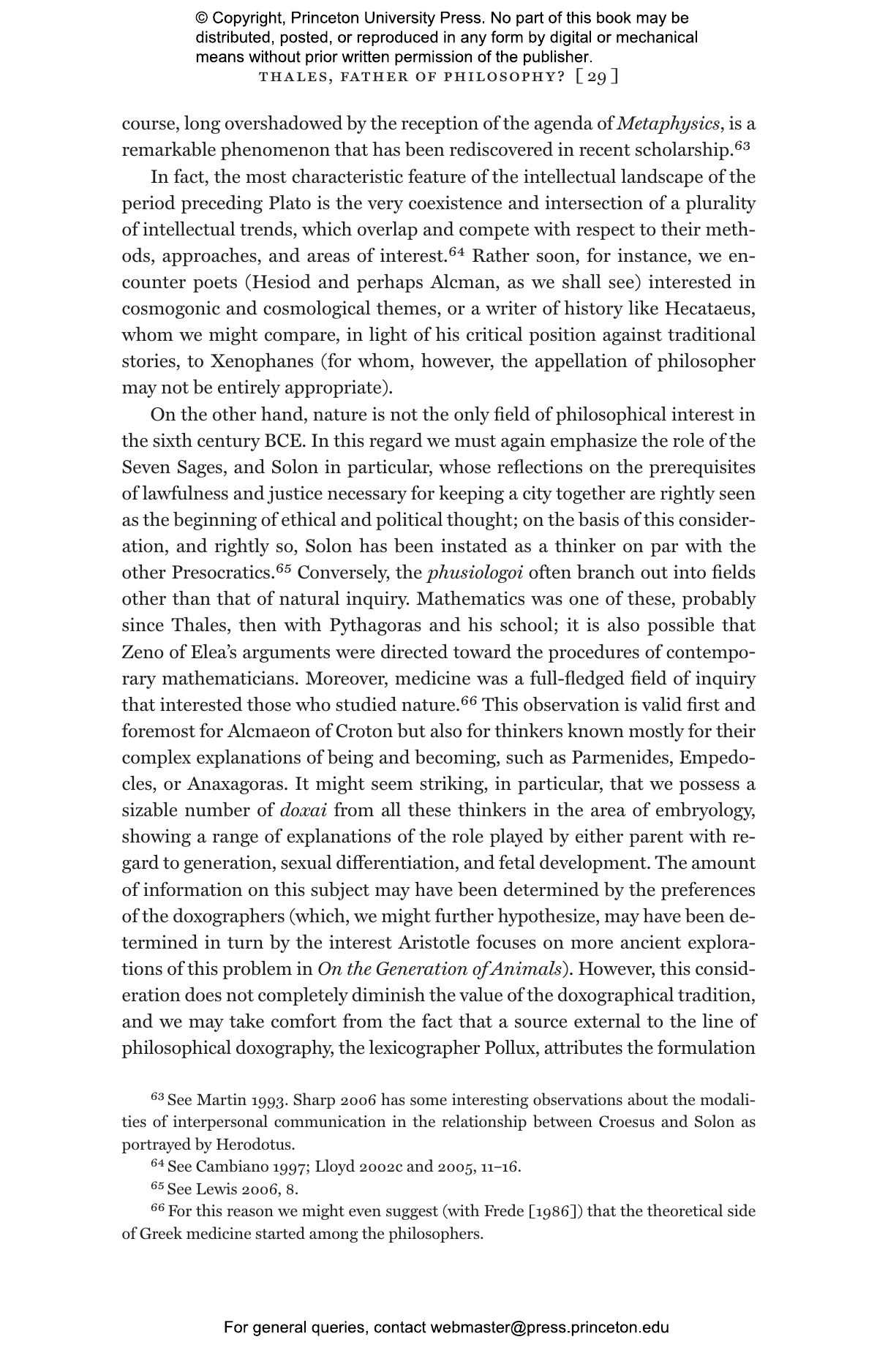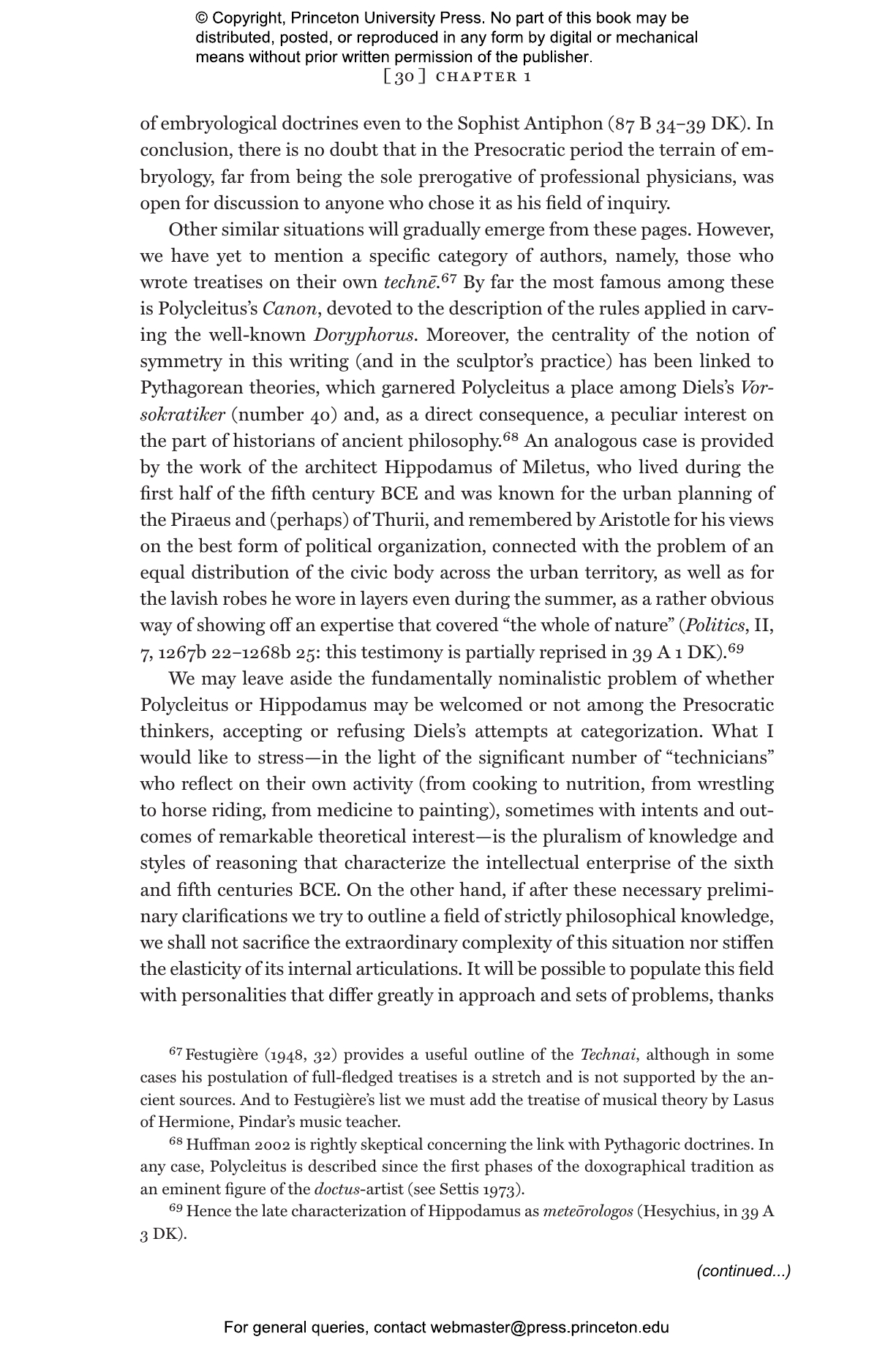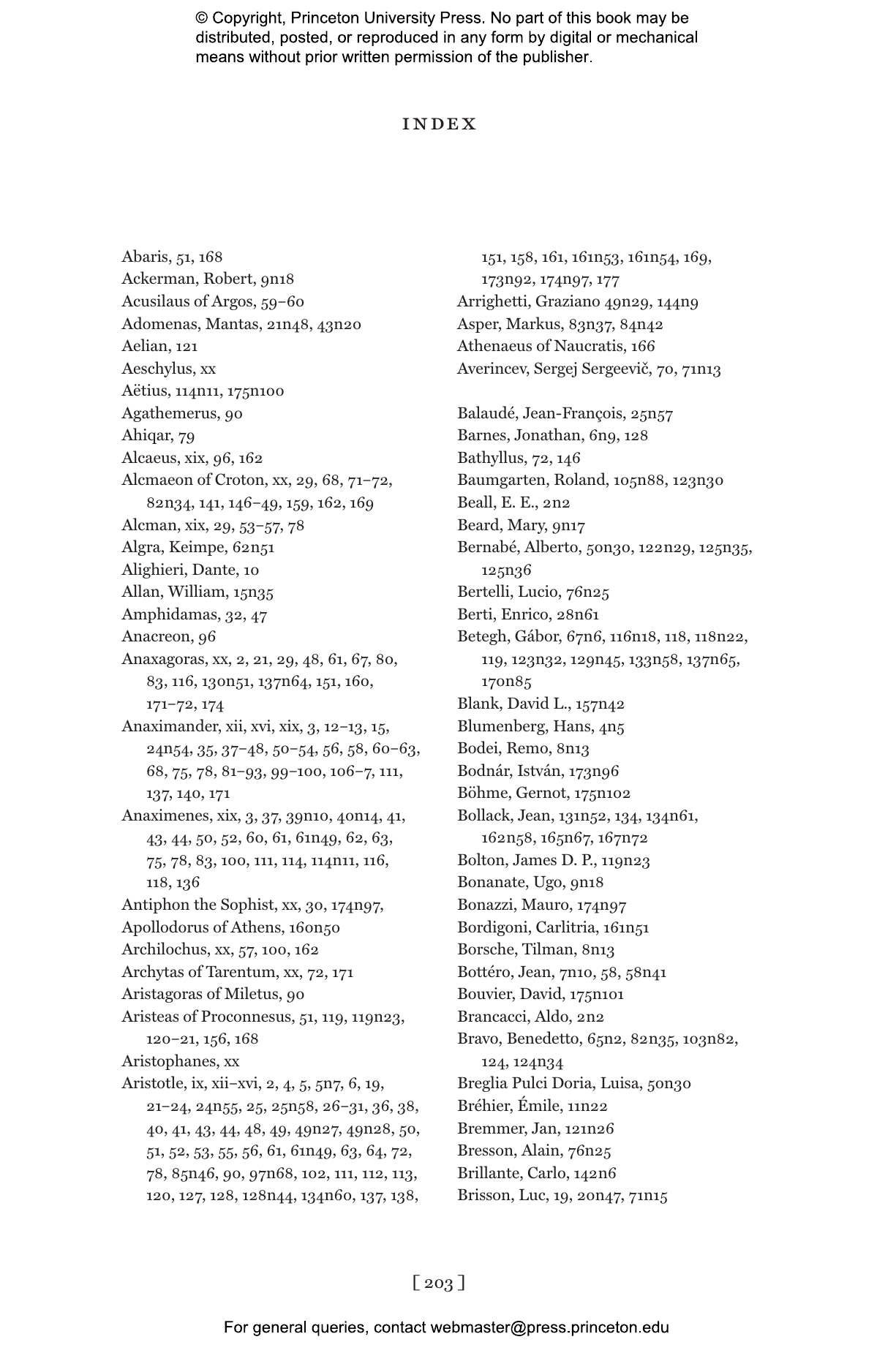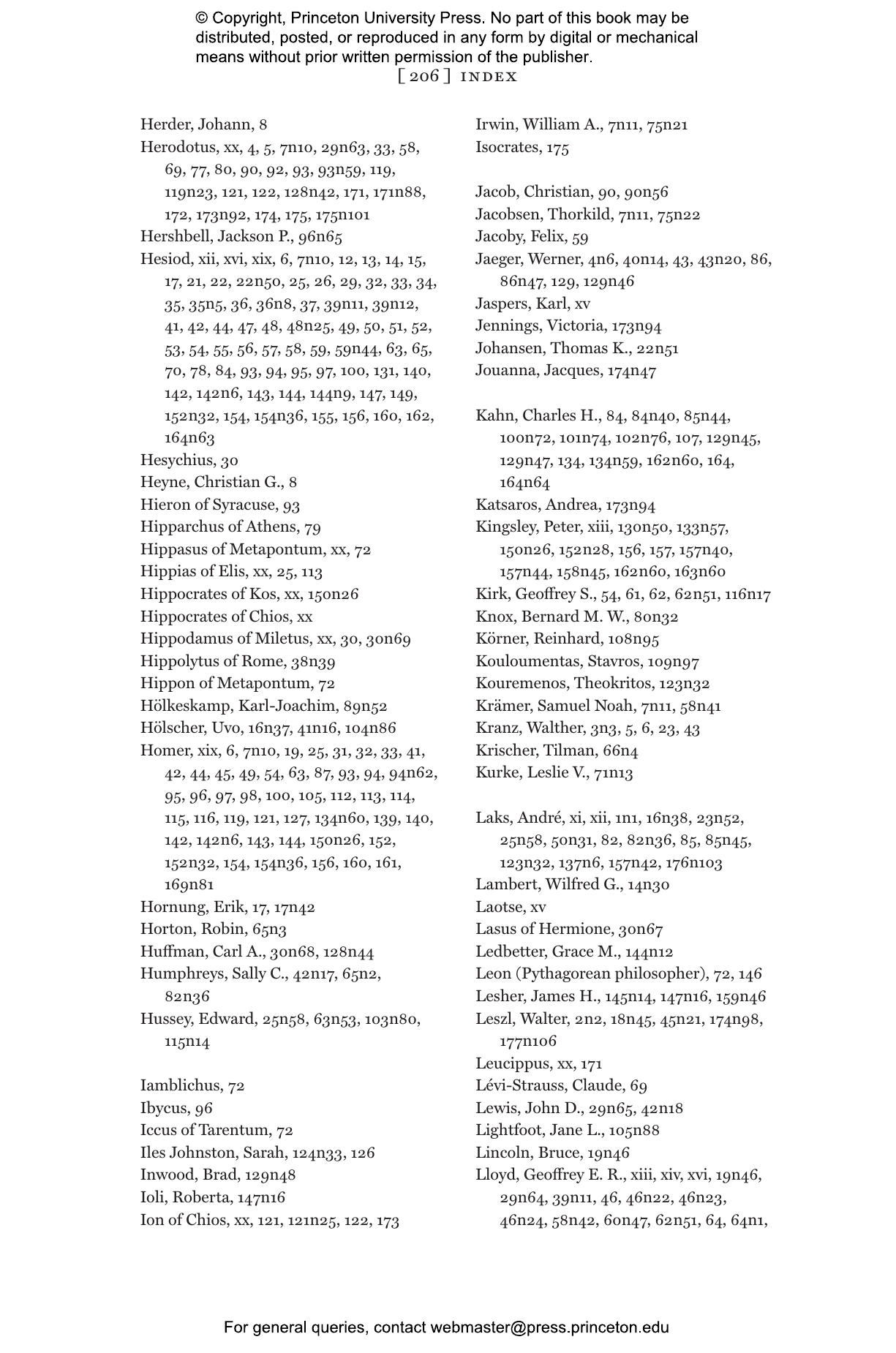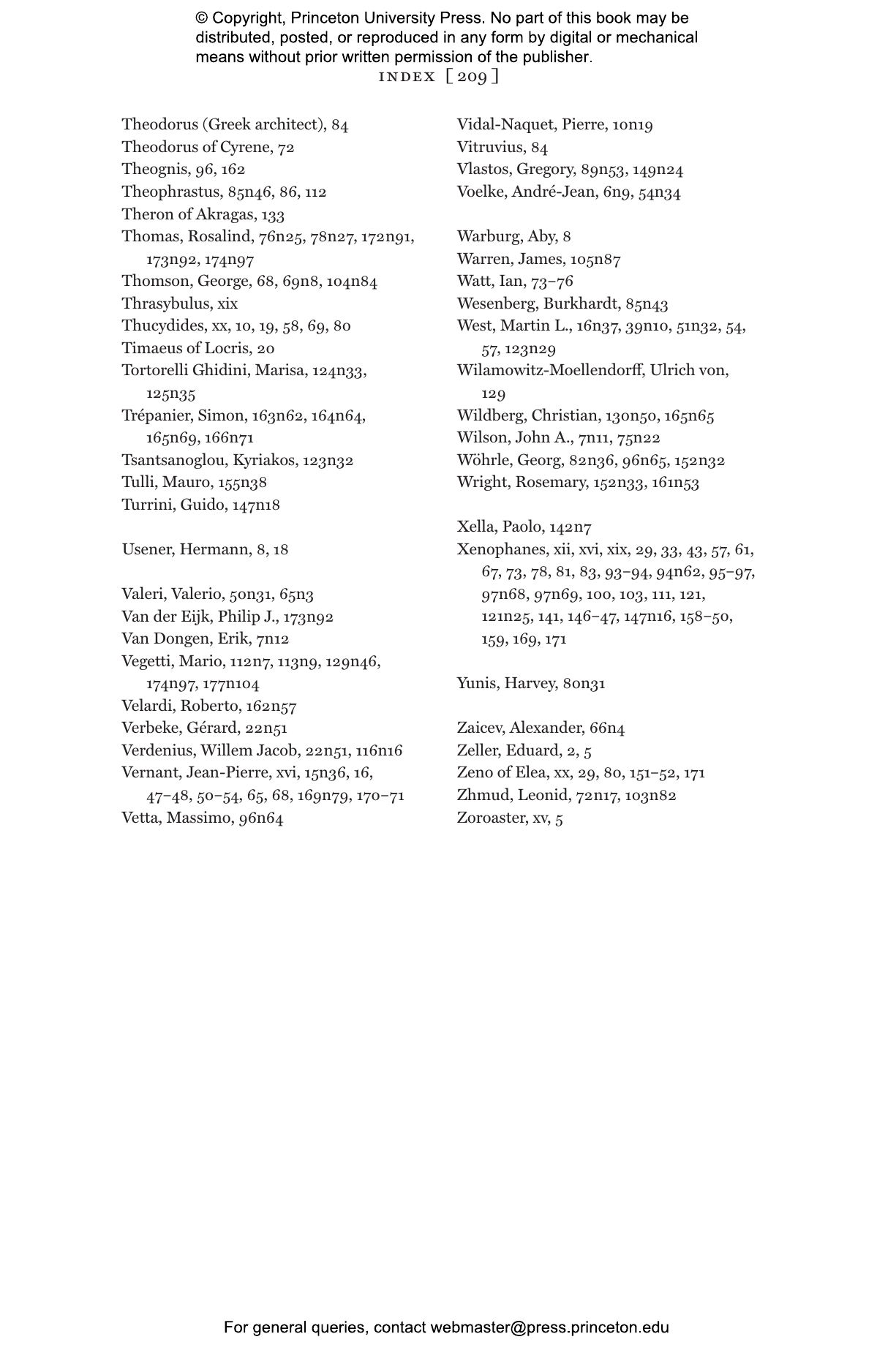How can we talk about the beginnings of philosophy today? How can we avoid the conventional opposition of mythology and the dawn of reason and instead explore the multiple styles of thought that emerged between them? In this acclaimed book, available in English for the first time, Maria Michela Sassi reconstructs the intellectual world of the early Greek âPresocraticsâ to provide a richer understanding of the roots of what used to be called âthe Greek miracle.â
The beginnings of the long process leading to philosophy were characterized by intellectual diversity and geographic polycentrism. In the sixth and fifth centuries BC, between the Asian shores of Ionia and the Greek city-states of southern Italy, thinkers started to reflect on the cosmic order, elaborate doctrines on the soul, write in solemn Homeric meter, or, later, abandon poetry for an assertive prose. And yet the Presocratics, whether the Milesian natural thinkers, the rhapsode Xenophanes, the mathematician and âshamanâ Pythagoras, the naturalist and seer Empedocles, the oracular Heraclitus, or the inspired Parmenides, all shared an approach to critical thinking that, by questioning traditional viewpoints, revolutionized knowledge.
A unique study that explores the full range of early Greek thinkers in the context of their worlds, the book also features a new introduction to the English edition in which the author discusses the latest scholarship on the subject.
Maria Michela Sassi teaches the history of ancient philosophy at the University of Pisa. Her books include The Science of Man in Ancient Greece.
"[A] rich investigation of the origins of philosophical thought in Greek culture."âPeter Adamson, New York Review of Books
"Readers will come away with a much more nuanced understanding of the origins of philosophy in Greece and the many contributing factors."âDavid Lorimer, Paradigm Explorer
"[Sassiâs] understanding of ancient societies and philological tradition will enrich how surveys of ancient philosophy are taught."âP.W. Wakefield, Choice Reviews
"This elegant study shows how a variety of historical, social, and cultural questions and factors eventually led to the formation of a new discipline called âphilosophyâ in ancient Greece. Sassi displays an admirable blend of anthropological and philosophical sensitivity that is perfectly adapted to the subject and illuminates it in many new ways."âAndré Laks, author of The Concept of Presocratic Philosophy
"This book is among the most illuminating contributions to the much-debated topic of how, why, and in what form the Greeks of the sixth and fifth centuries BC created philosophy. Its constructive blend of cultural history, anthropology, and philosophical analysis makes it particularly good to think with, and it is now finally available to a broader audience of Anglophone readers."âDavid Sedley, University of Cambridge
"This impressively learned book contributes to longstanding debates about the beginnings of Greek philosophy, its connections to earlier Greek writings that address similar topics, the way Aristotle shapes our access to Presocratic philosophy, and more."âKatja Maria Vogt, Columbia University
"Avoiding the main pitfalls that beset her subject, Sassi looks afresh at the evidence for important early Greek thinkers, asks what can be attributed to them, and admirably allows for a great variety of responses to that question."âGeoffrey Lloyd, Needham Research Institute
